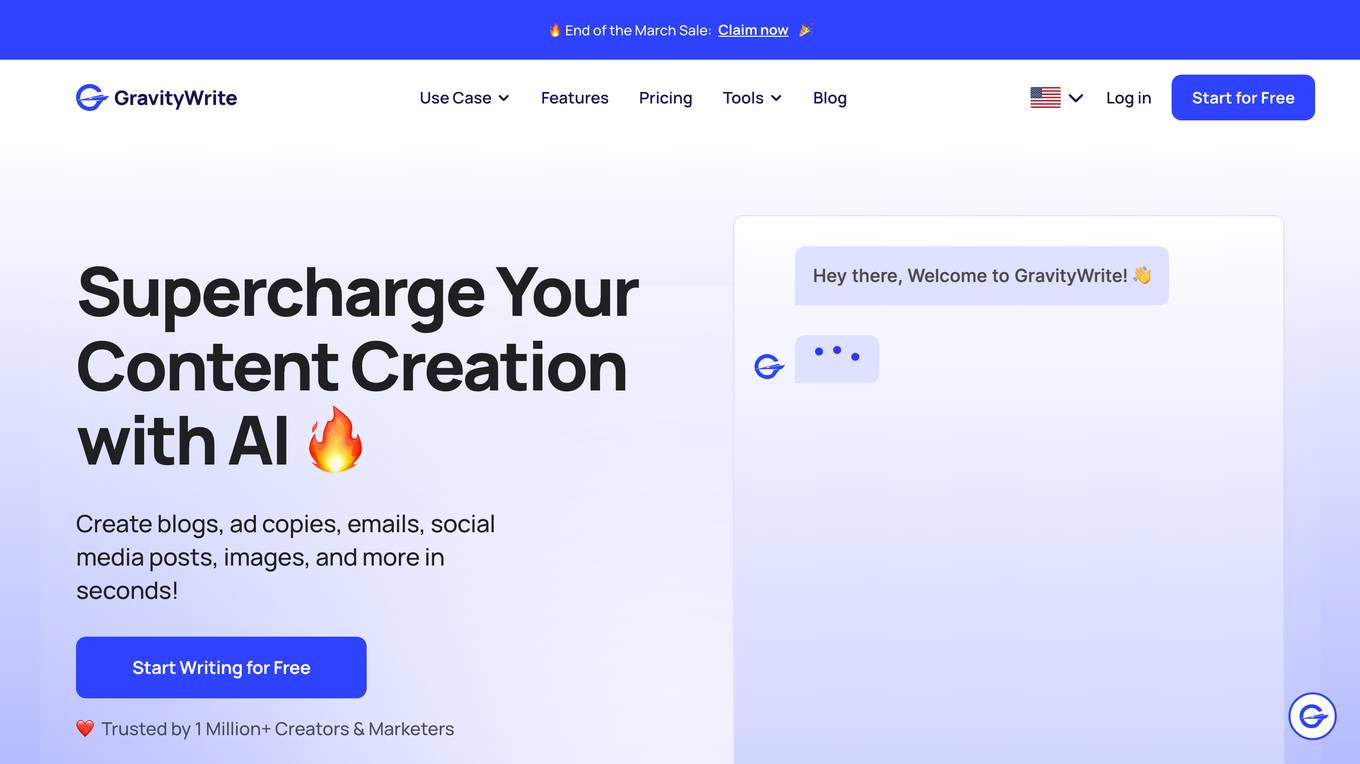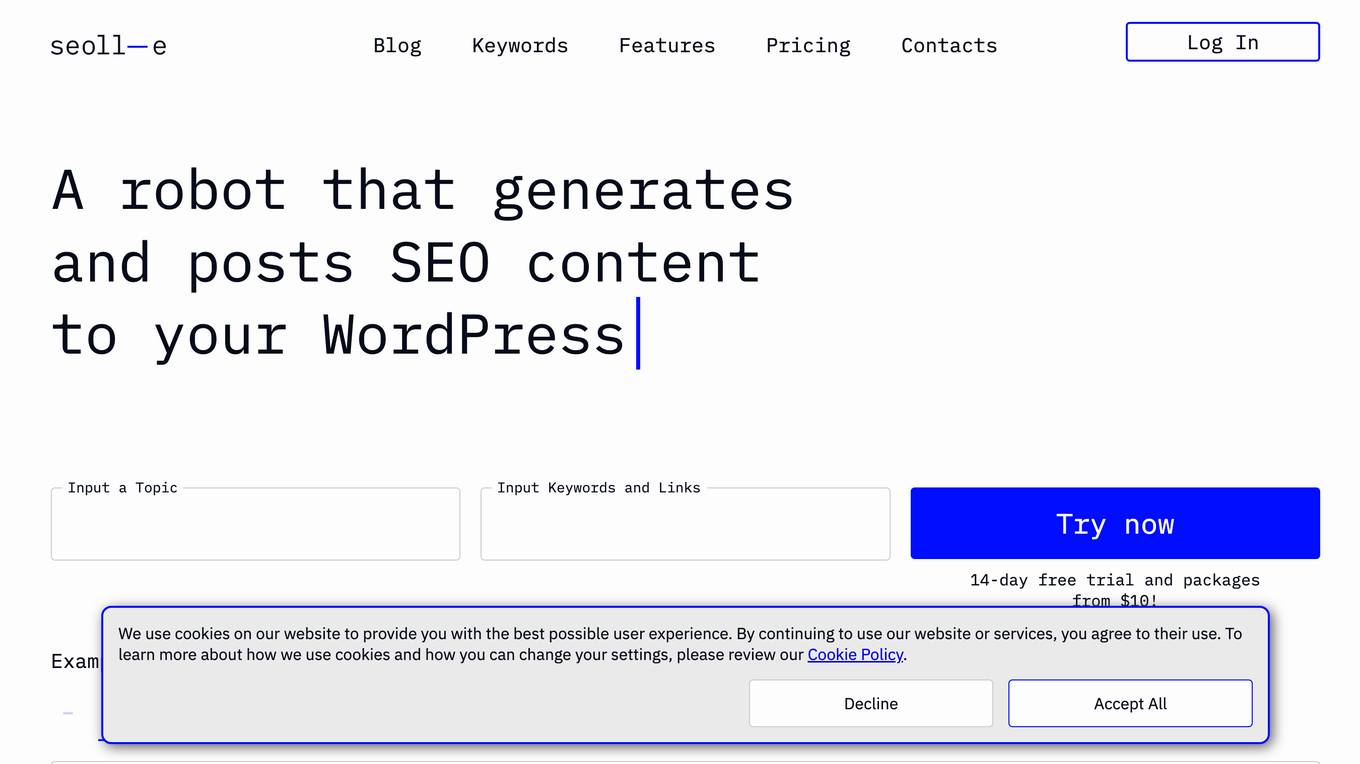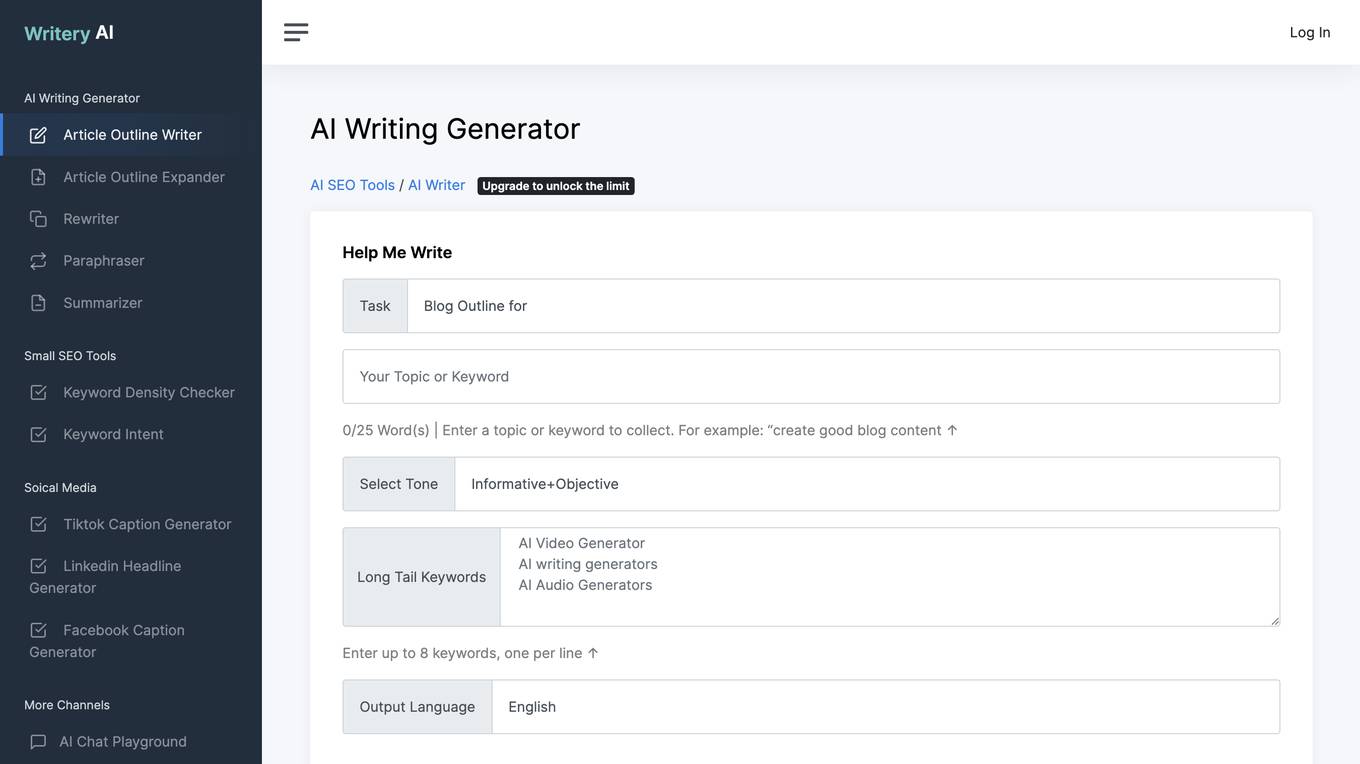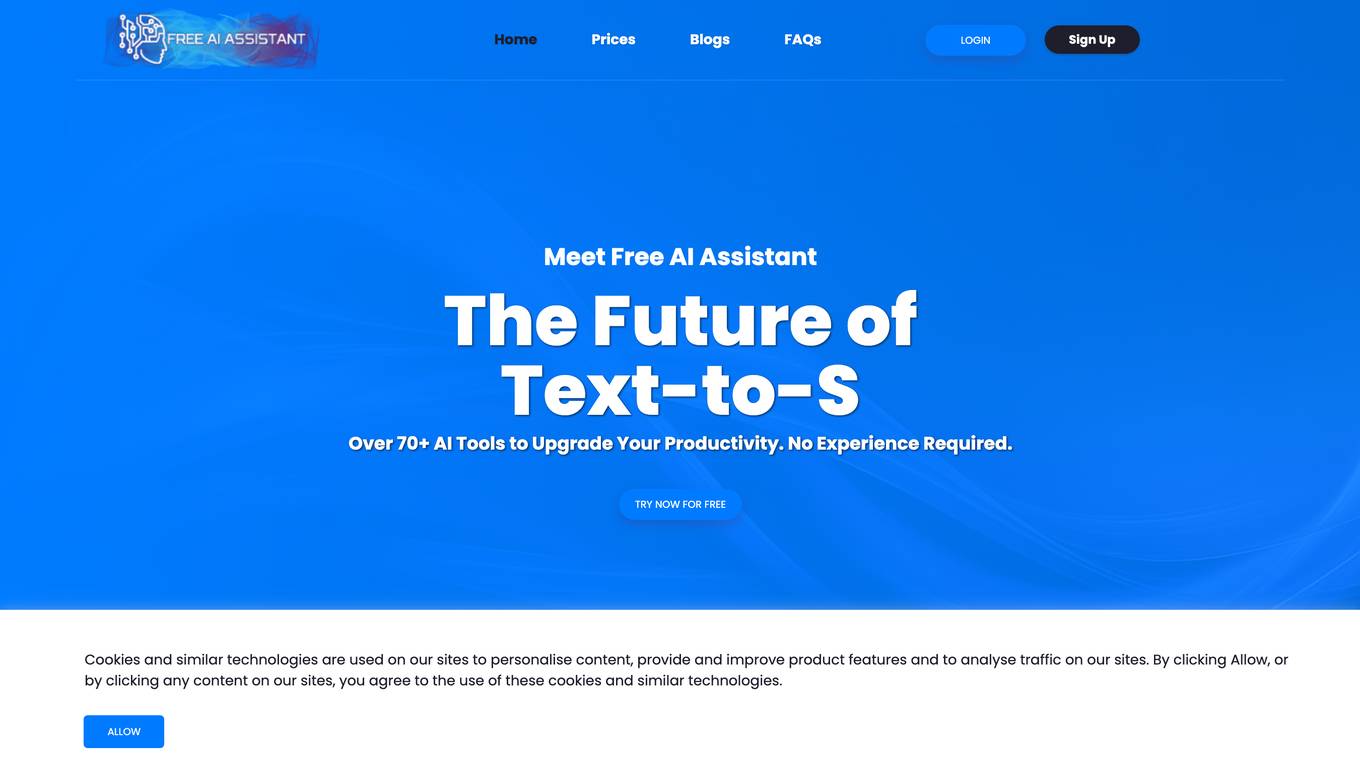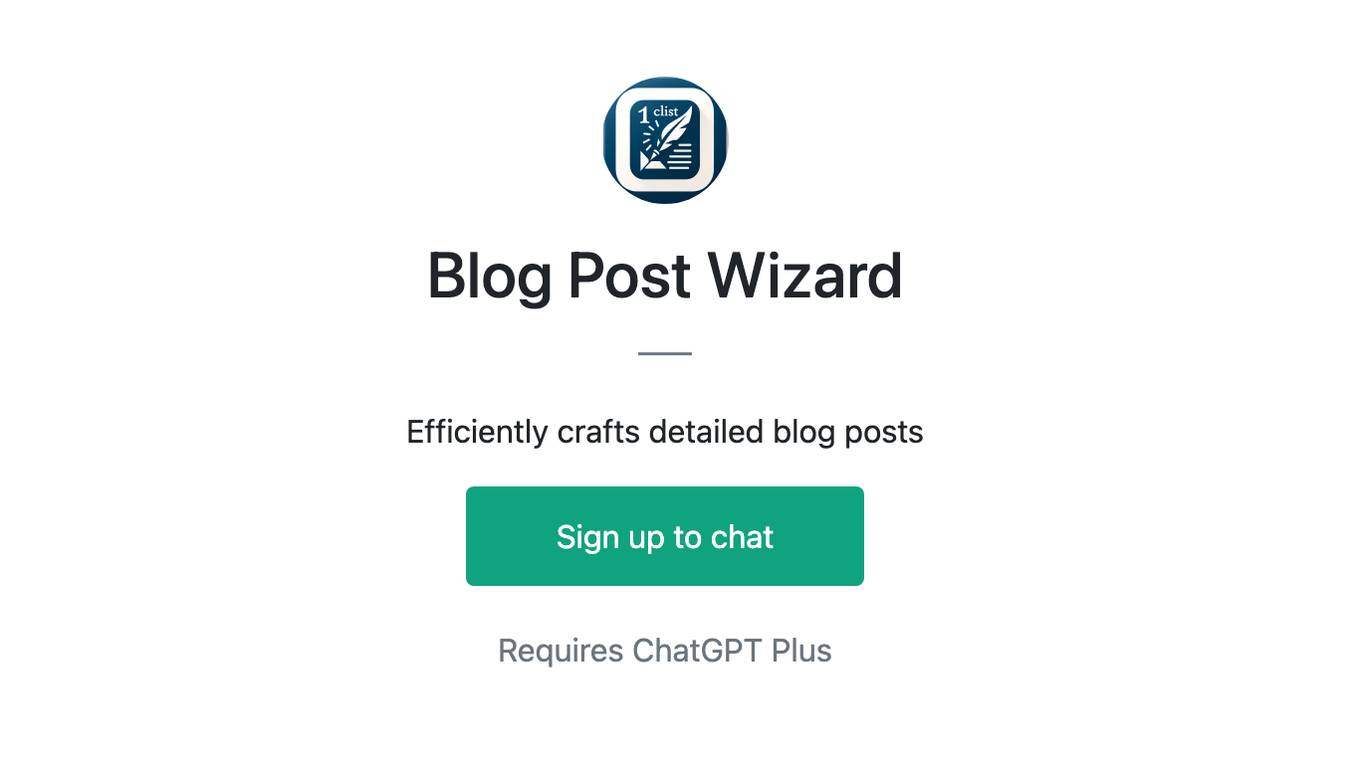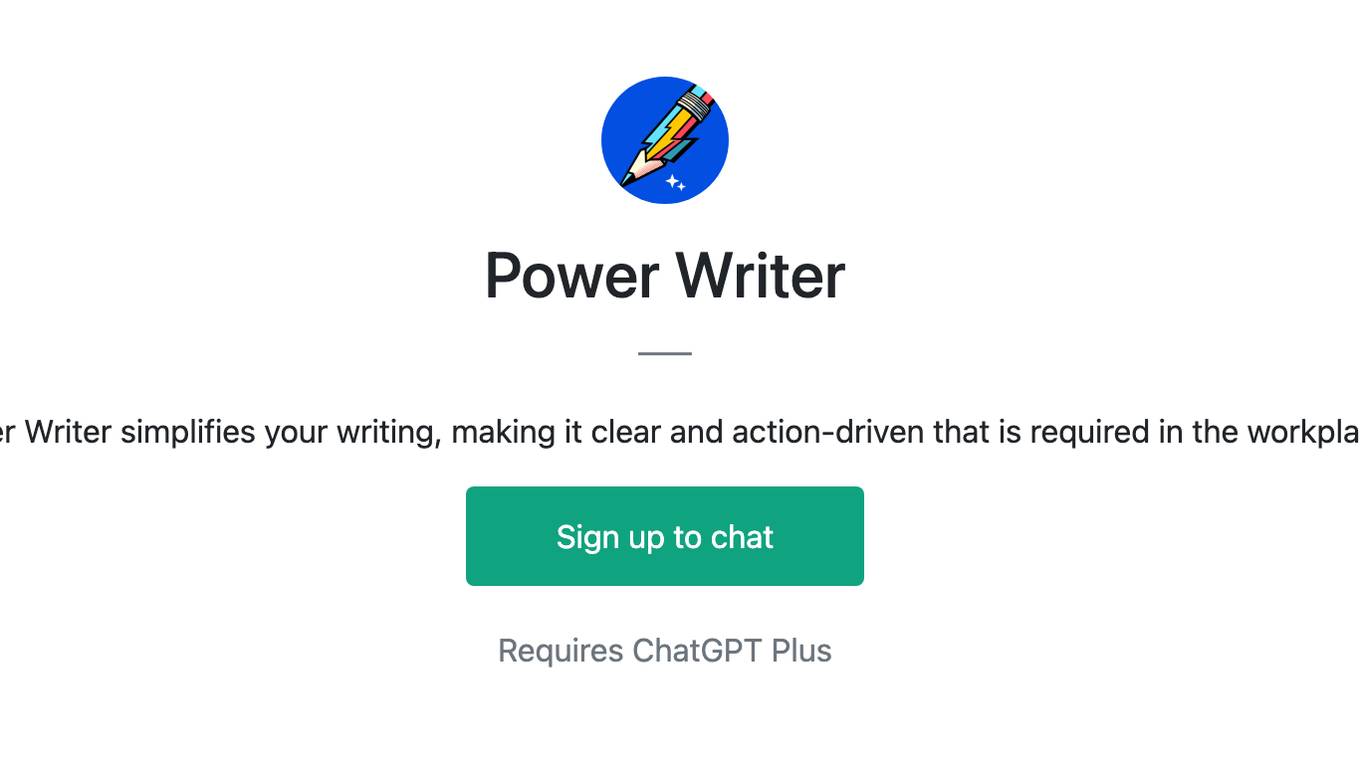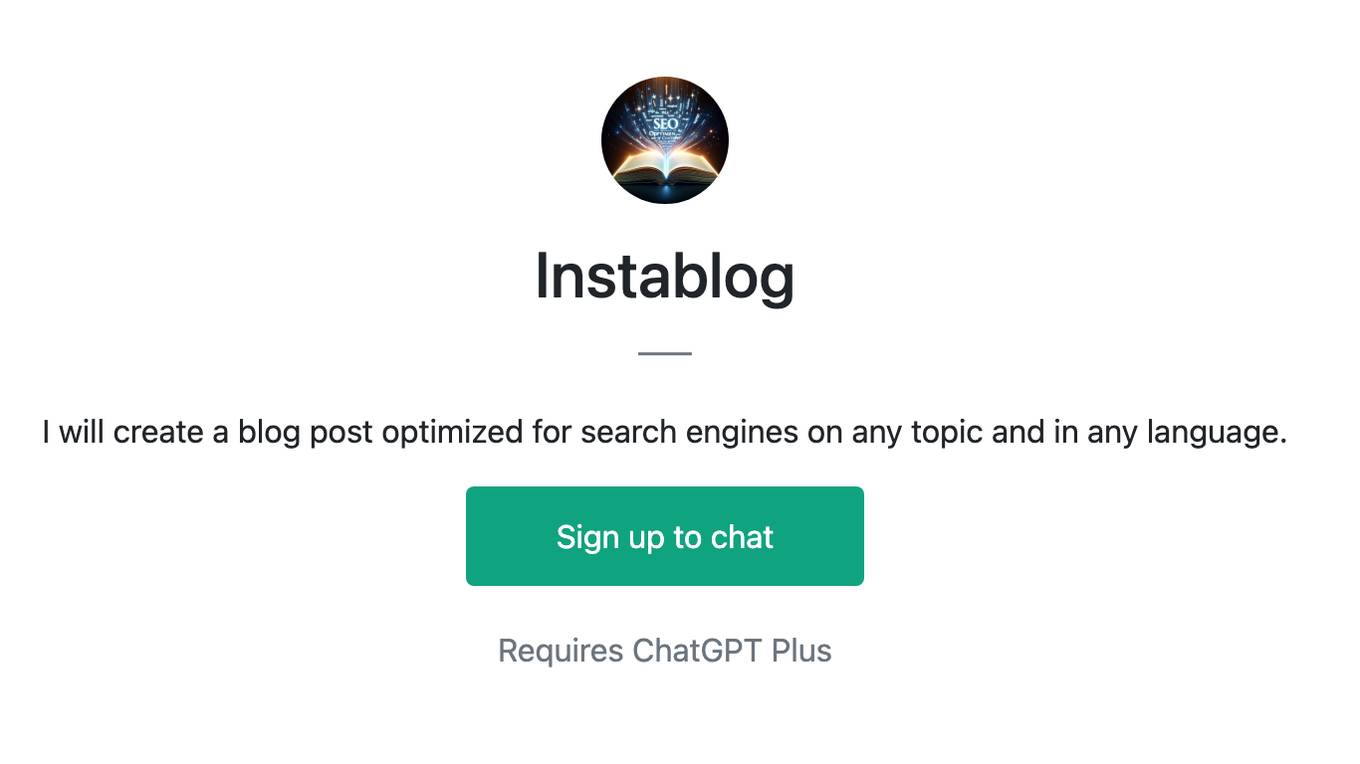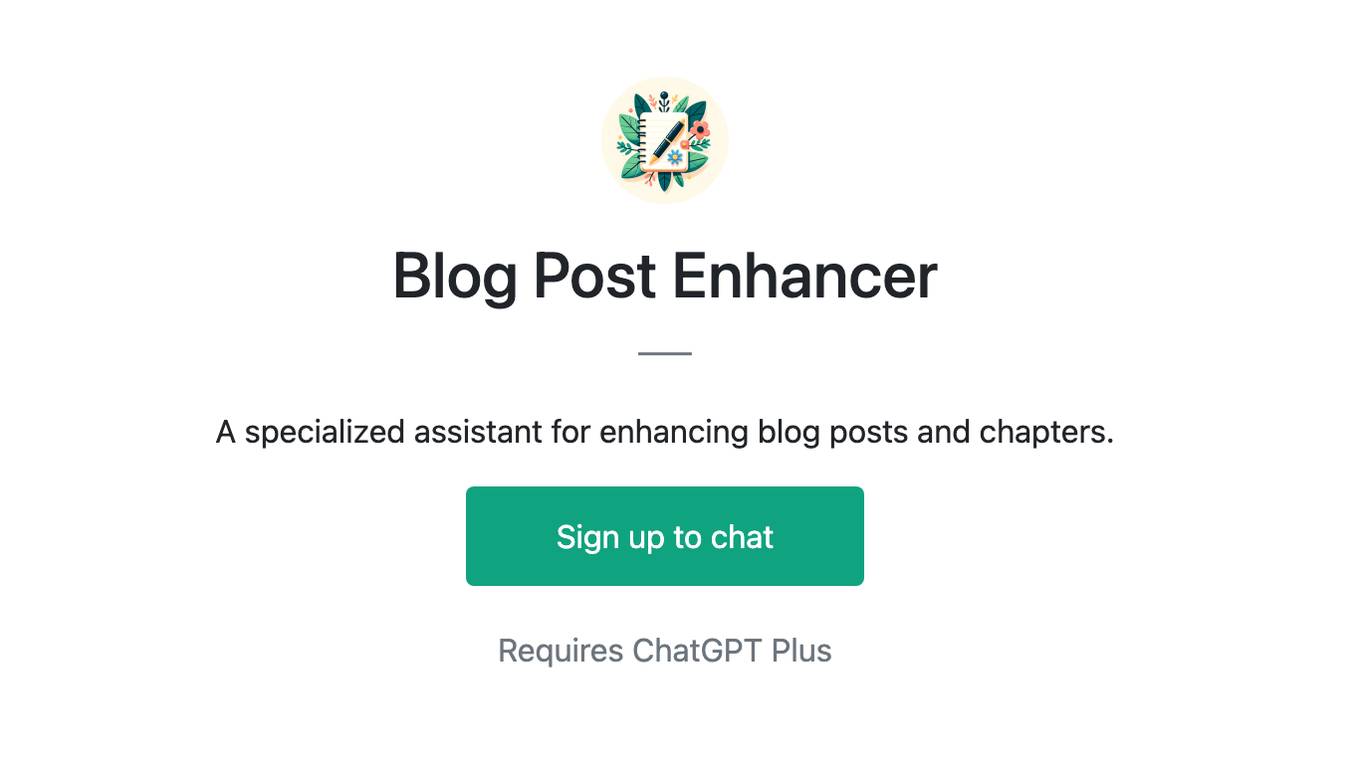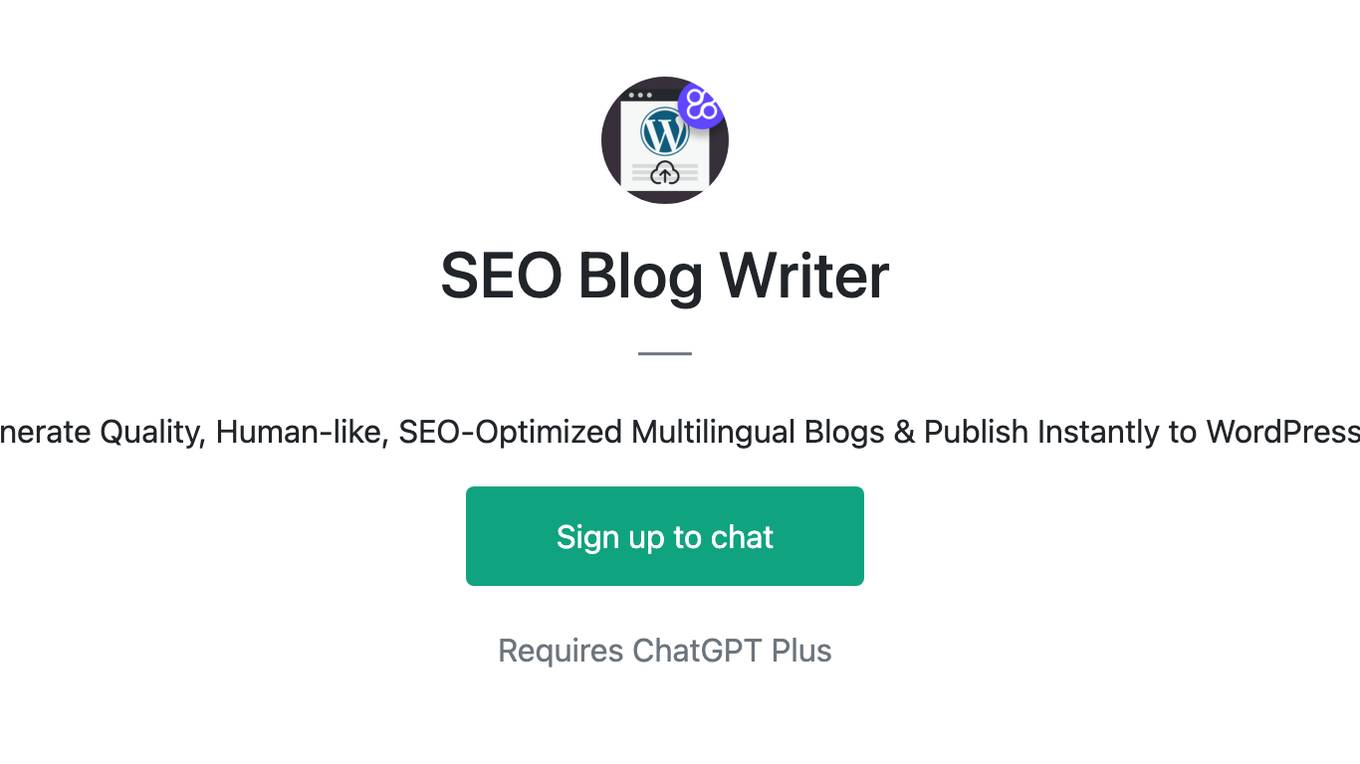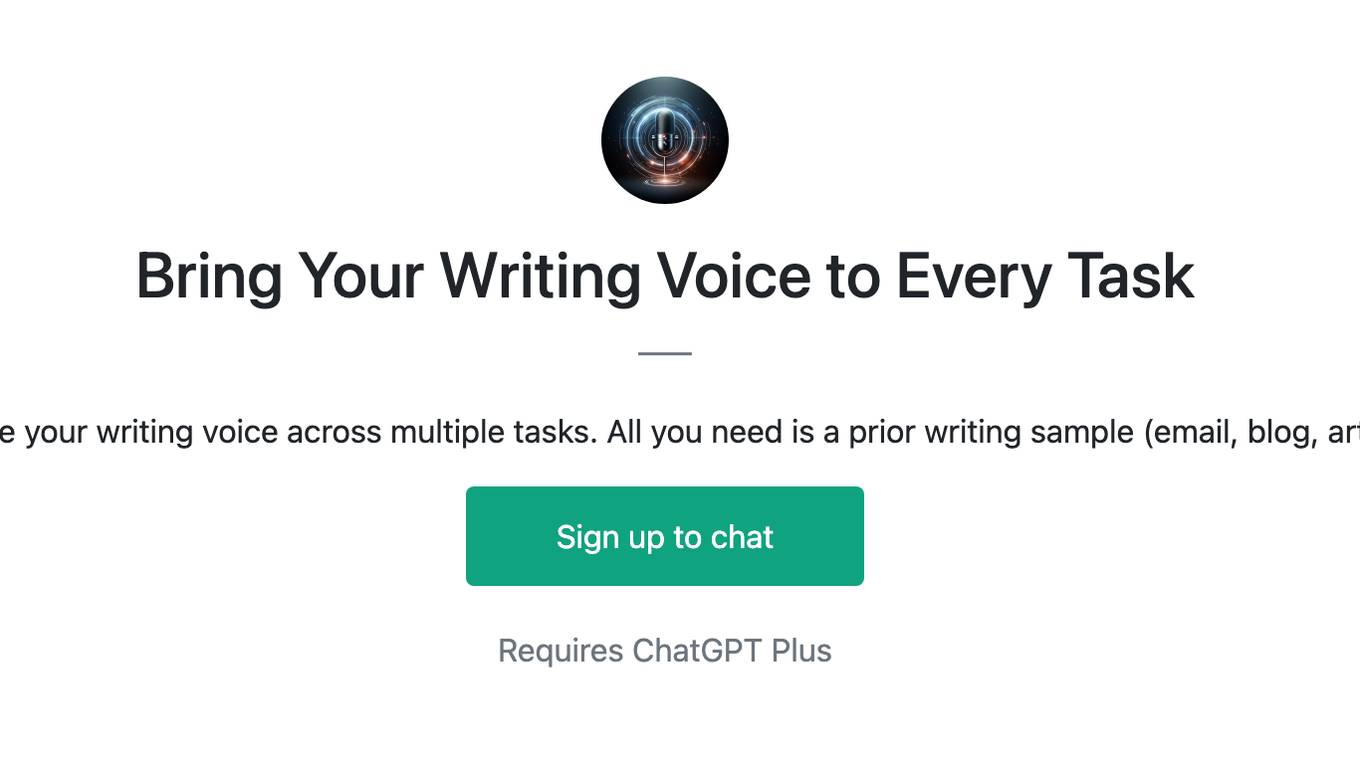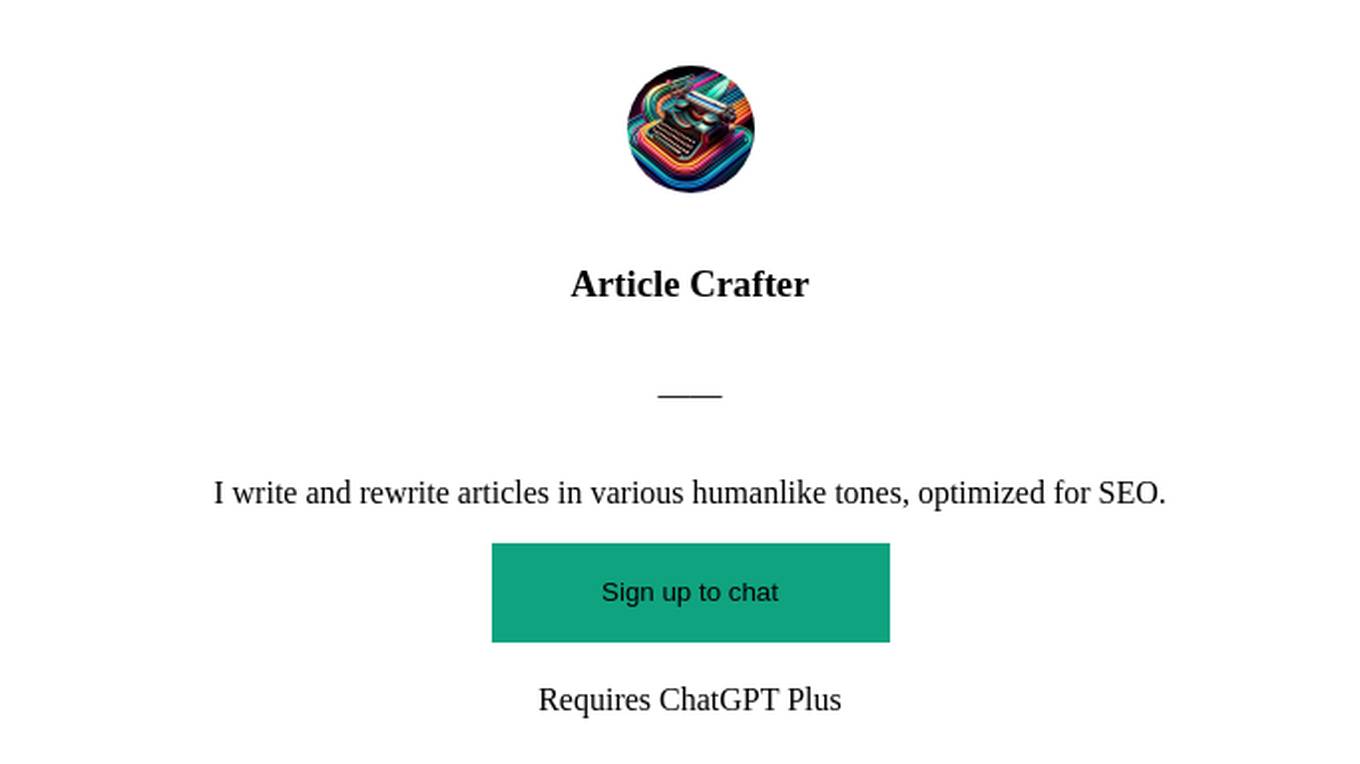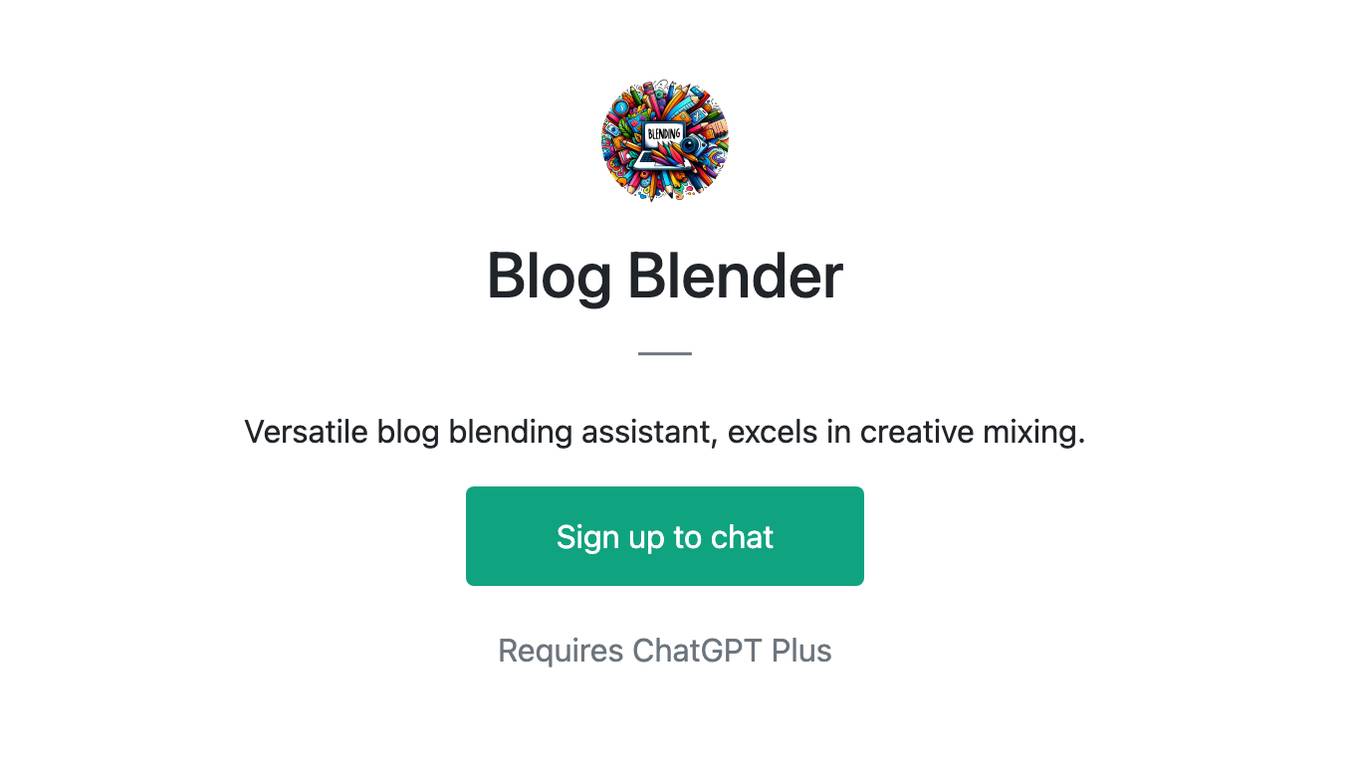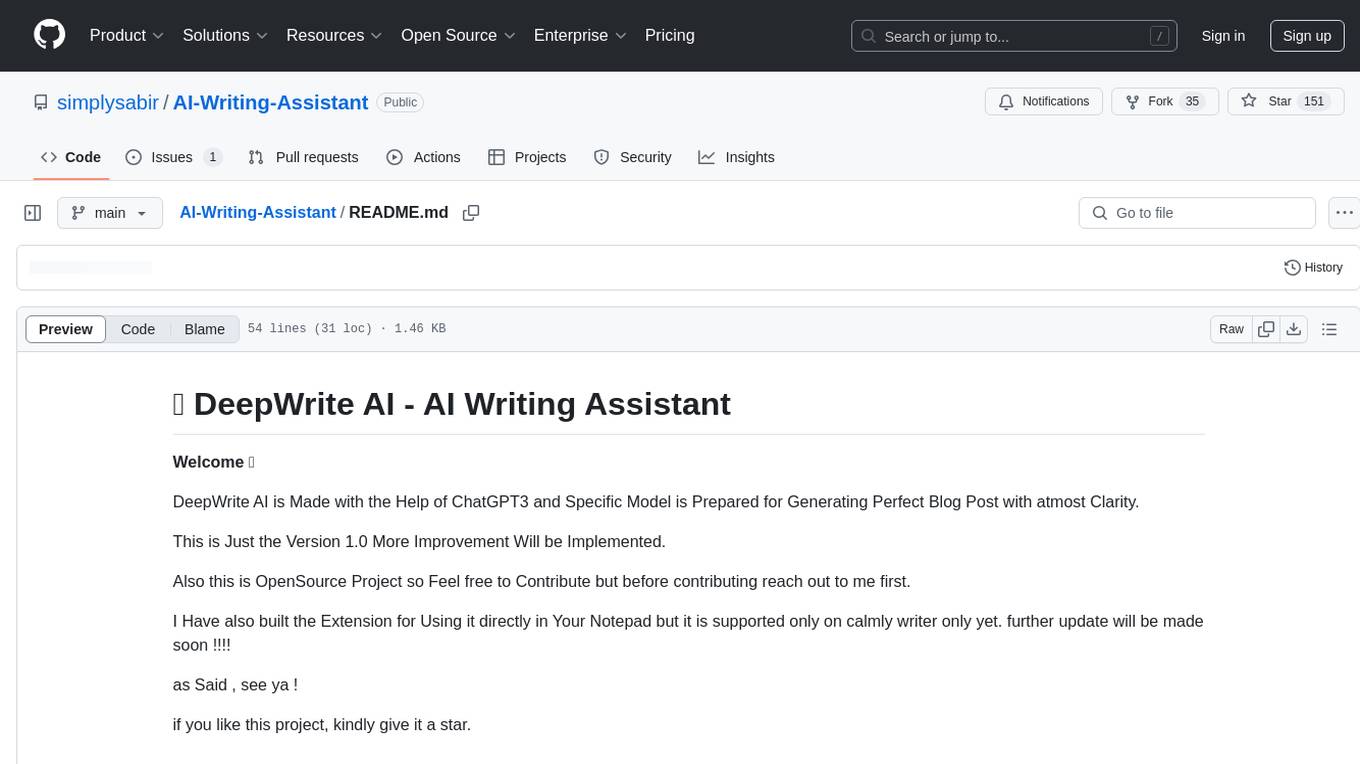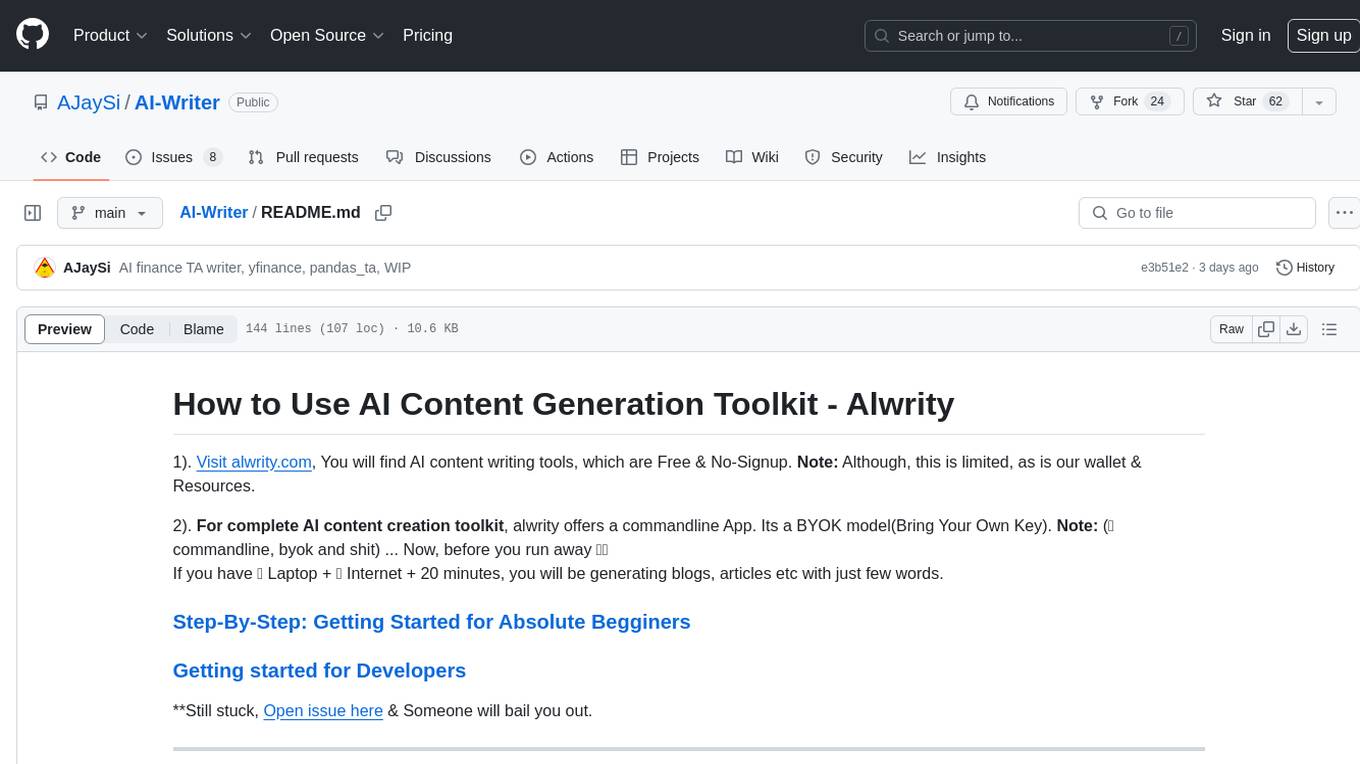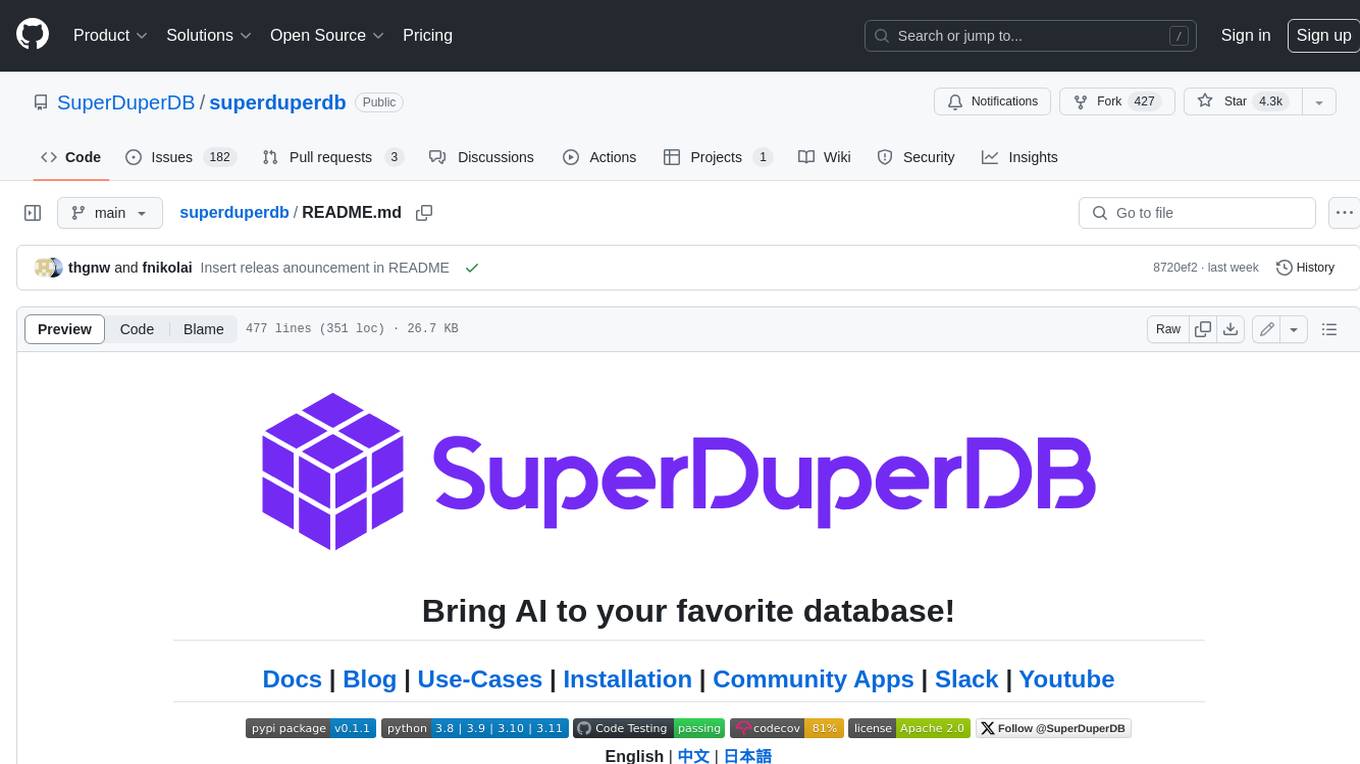AI tools for blog post writing
Related Tools:
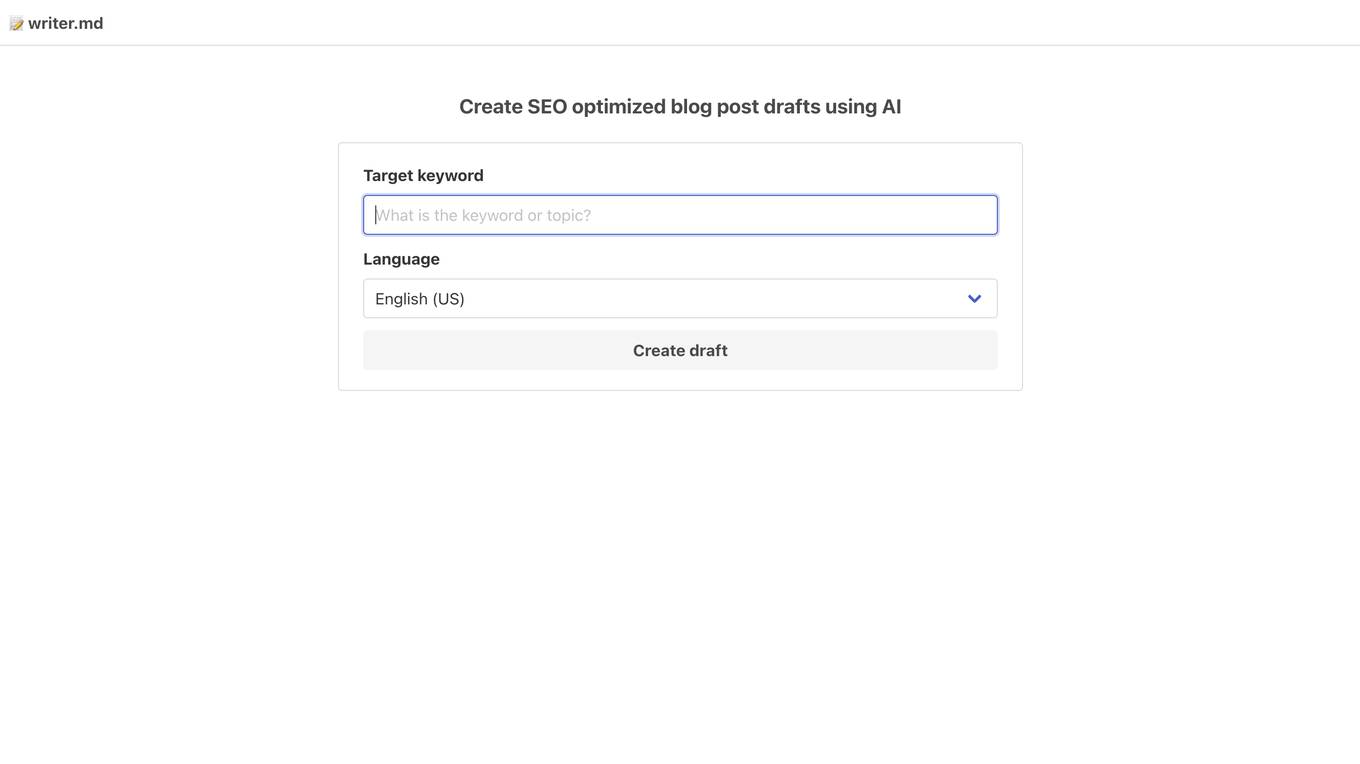
Writer.md
Writer.md is an AI-powered tool designed to help users create SEO-optimized blog post drafts effortlessly. By leveraging artificial intelligence technology, the platform assists in generating high-quality content by suggesting relevant keywords and structuring the content for better search engine visibility. Users can easily create drafts in multiple languages, including English, German, Dutch, Spanish, and Italian. The tool aims to streamline the content creation process and enhance the overall quality of blog posts.

AI BlogWiz
AI BlogWiz is an AI application designed to assist users in generating high-quality blog content efficiently. It offers a range of AI-powered tools such as Full Blog Generator, AI Image Creation, SEO Tools, and Trained Chat Bots. Users can create compelling blog articles, generate SEO keywords, and enhance their content with AI assistance. AI BlogWiz aims to streamline the content creation process and help users attract more traffic to their websites through AI-driven strategies.

Voilà
Voilà is an AI-powered browser assistant that helps users create high-quality content, improve their writing, brainstorm ideas, and research topics. It offers a wide range of features, including a library of expert-crafted prompts, the ability to convert web pages into various types of content, and access to real-time information from across the web. Voilà is available as a browser extension for Chrome, Edge, Firefox, Safari, and Brave, as well as a mobile app for iOS and Android.

ZeroFluffs
ZeroFluffs is an advanced AI blog writing tool that helps users generate high-quality blog posts at scale for their SaaS blog. The tool creates SEO-optimized articles, custom visuals, and directly uploads them to the user's blog to attract organic traffic, increase sales, and grow their business. With features like brand style learning, seamless integrations, multi-lingual support, custom AI image generation, and 24/7 support, ZeroFluffs offers a comprehensive solution for content creation and marketing needs.

BrainText.Pro
BrainText.Pro is a human-like content generator specifically designed for bloggers, affiliate marketers, and eCommerce owners. It utilizes advanced AI technology, including GPT-4, to generate high-quality, informative, and engaging content with just a few clicks. The tool offers a wide range of templates and features to cater to various content creation needs, including blog posts, product reviews, articles, and more. With its user-friendly interface and powerful AI capabilities, BrainText.Pro aims to streamline the content creation process, saving time and effort while delivering exceptional results.
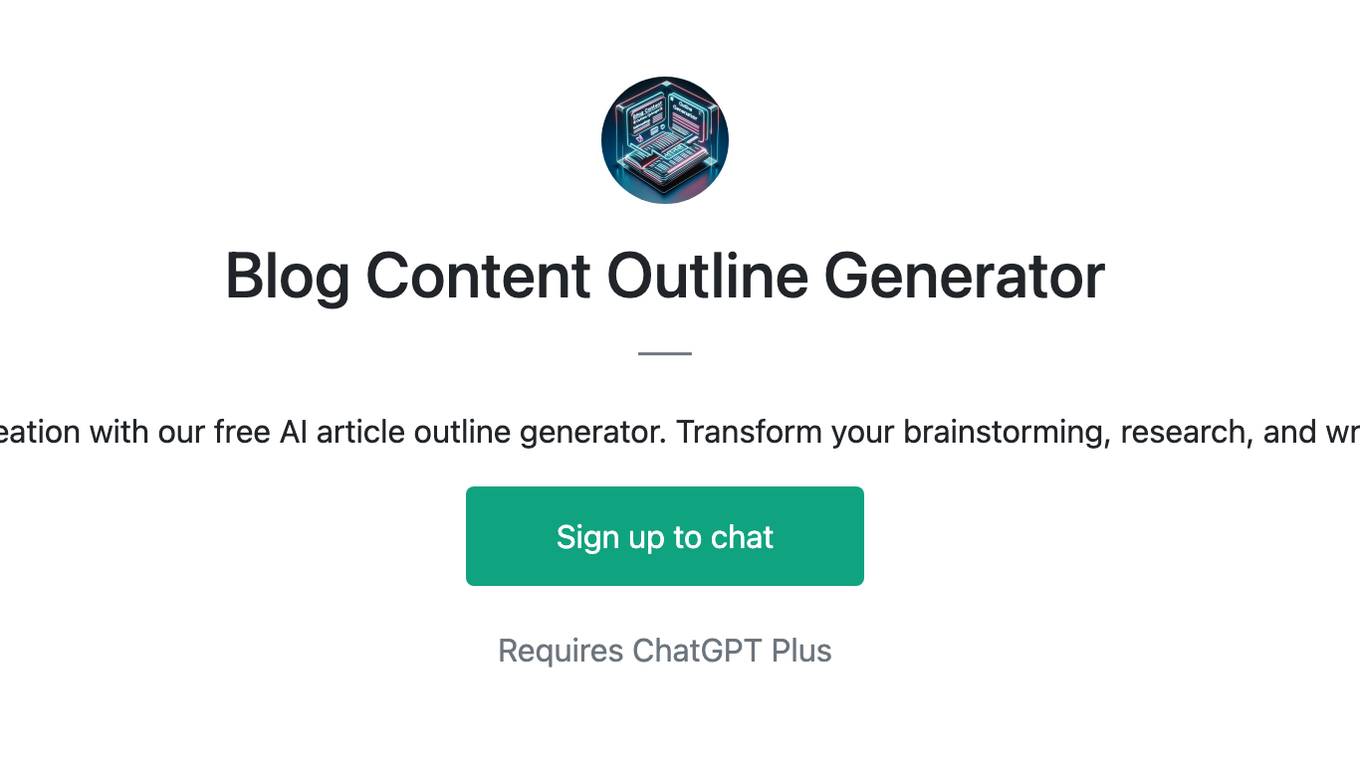
Blog Content Outline Generator
Streamline your content creation with our free AI article outline generator. Transform your brainstorming, research, and writing process in seconds!
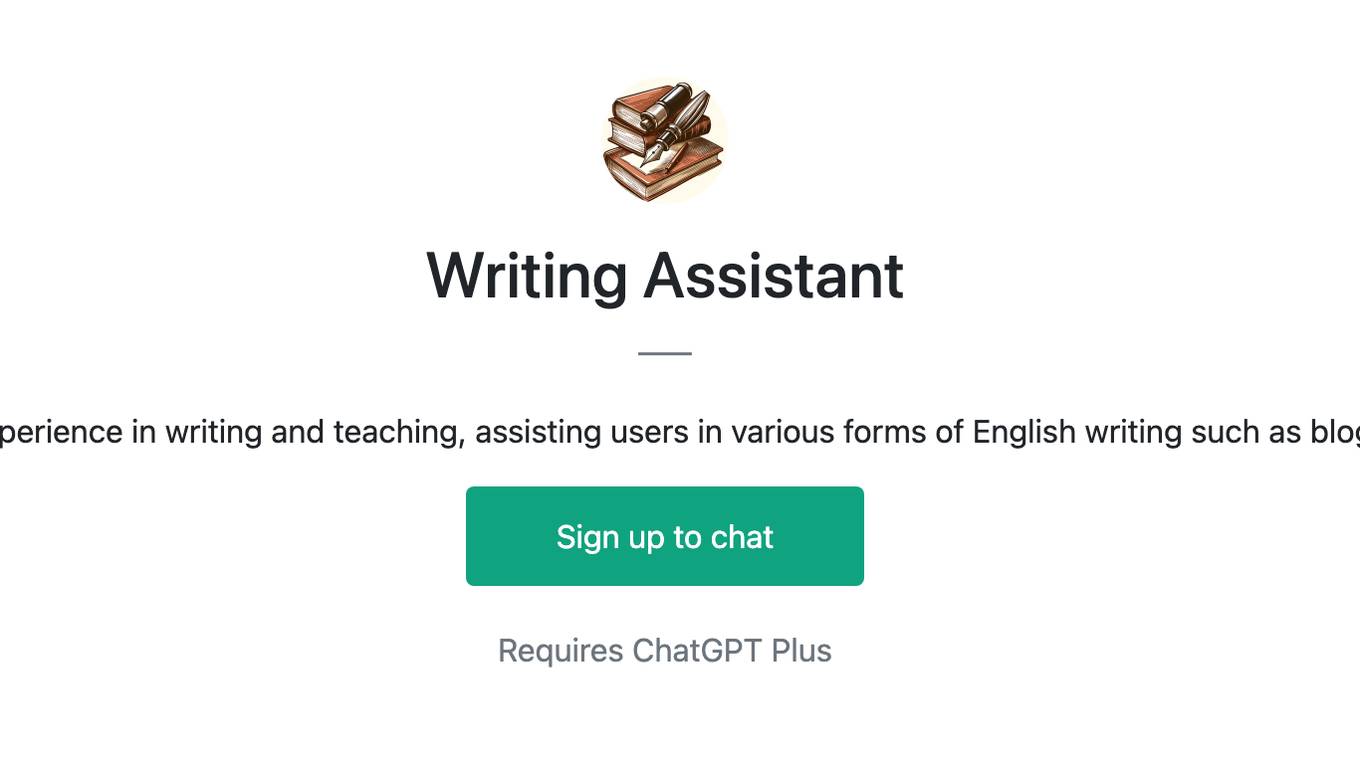
Writing Assistant
a writing assistant with extensive experience in writing and teaching, assisting users in various forms of English writing such as blog writing, essay writing, and more.
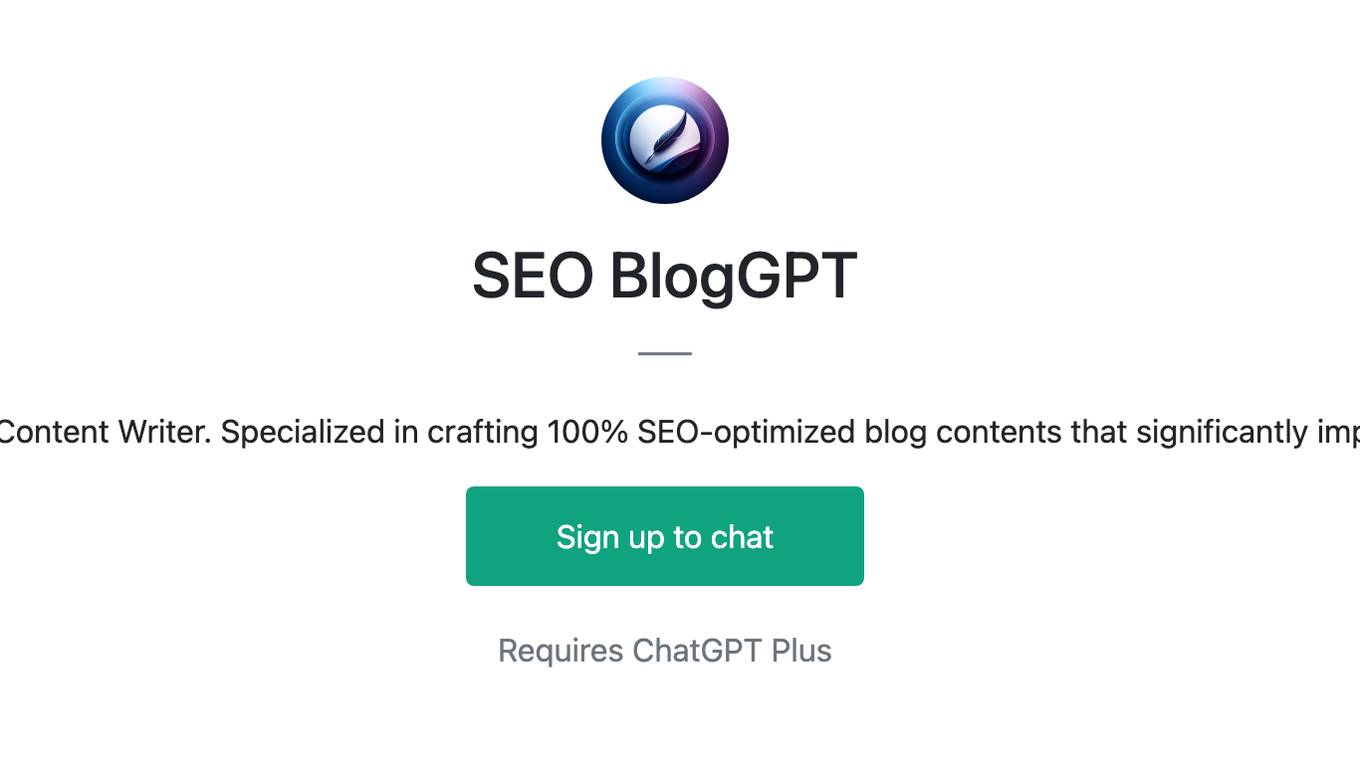
SEO BlogGPT
SEO Expert Blog Content Writer. Specialized in crafting 100% SEO-optimized blog contents that significantly improve blog SEO.
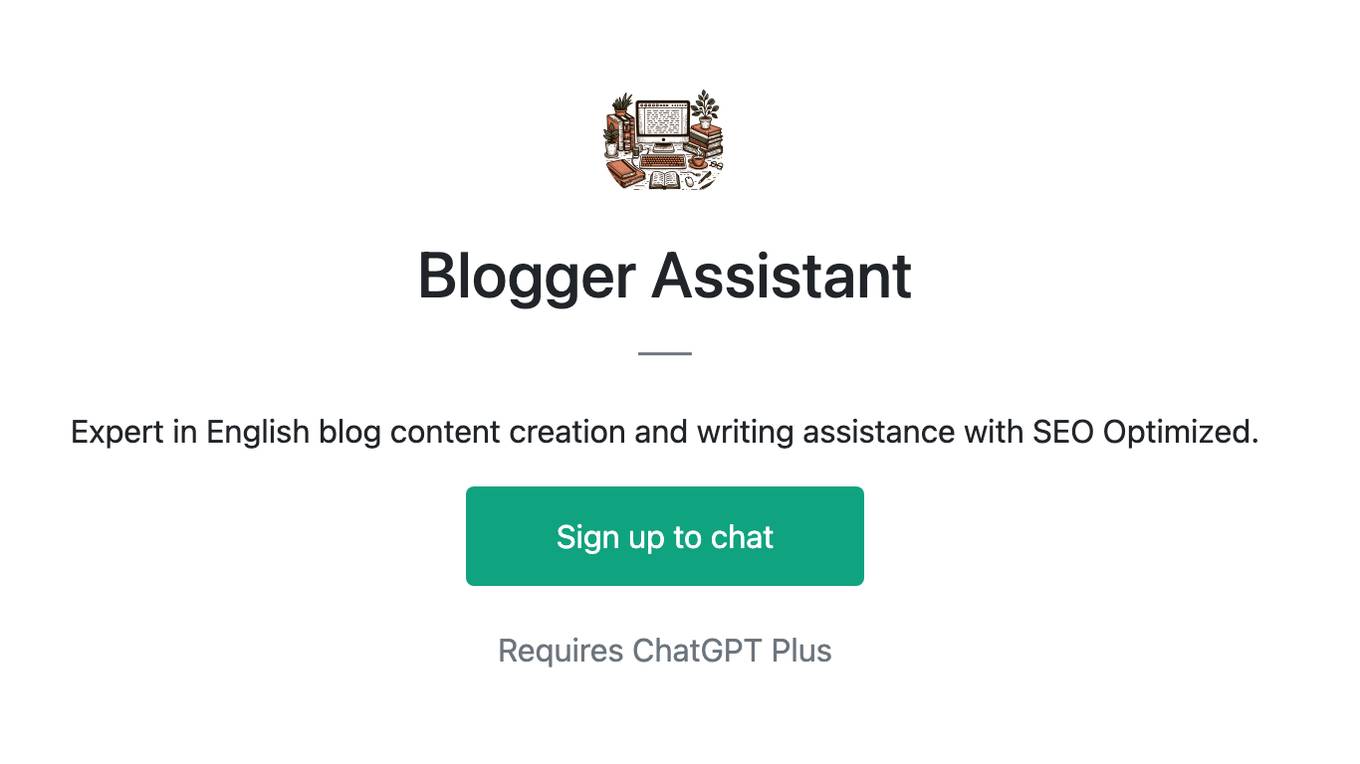
Blogger Assistant
Expert in English blog content creation and writing assistance with SEO Optimized.

Free SEO Content Outline Report
Create effective SEO content outlines for blog post to improve their website's search engine ranking.
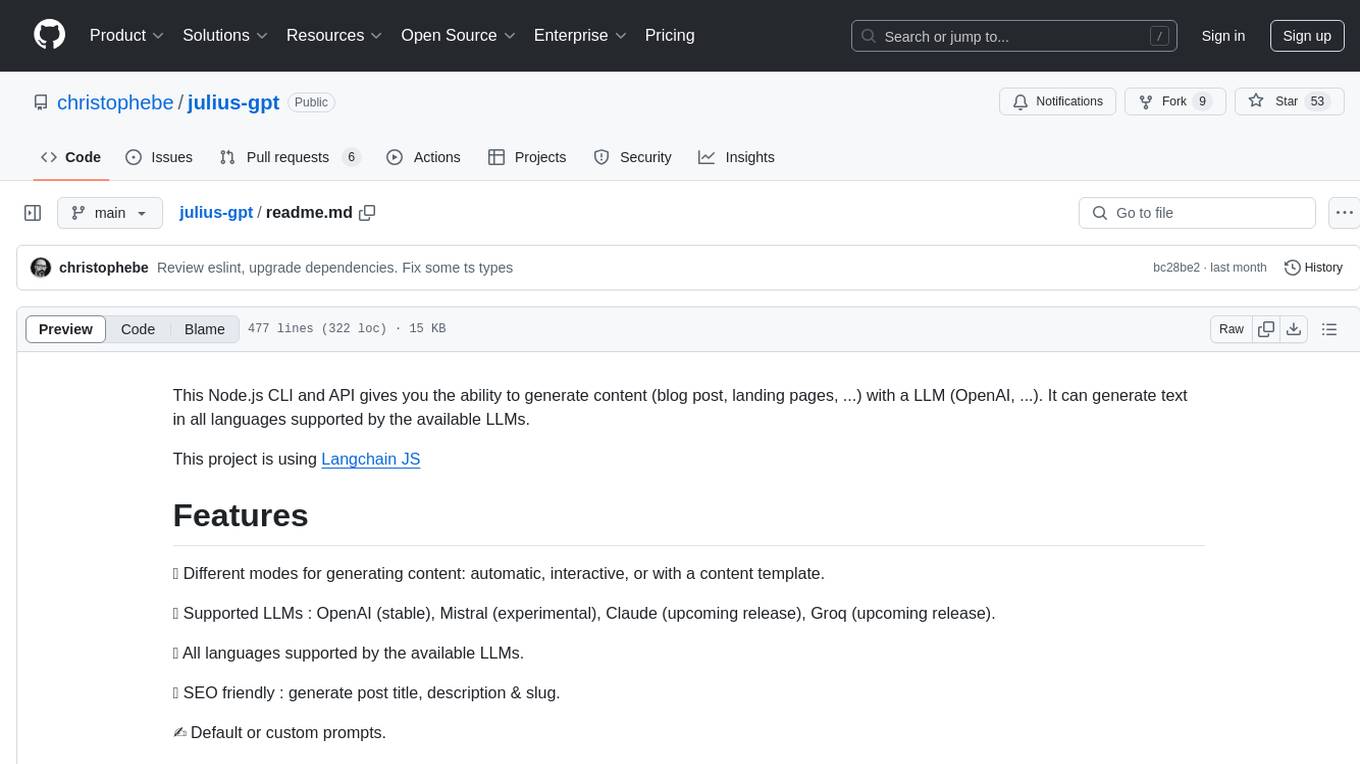
julius-gpt
julius-gpt is a Node.js CLI and API tool that enables users to generate content such as blog posts and landing pages using Large Language Models (LLMs) like OpenAI. It supports generating text in multiple languages provided by the available LLMs. The tool offers different modes for content generation, including automatic, interactive, or using a content template. Users can fine-tune the content generation process with completion parameters and create SEO-friendly content with post titles, descriptions, and slugs. Additionally, users can publish content on WordPress and access upcoming features like image generation and RAG. The tool also supports custom prompts for personalized content generation and offers various commands for WordPress-related tasks.
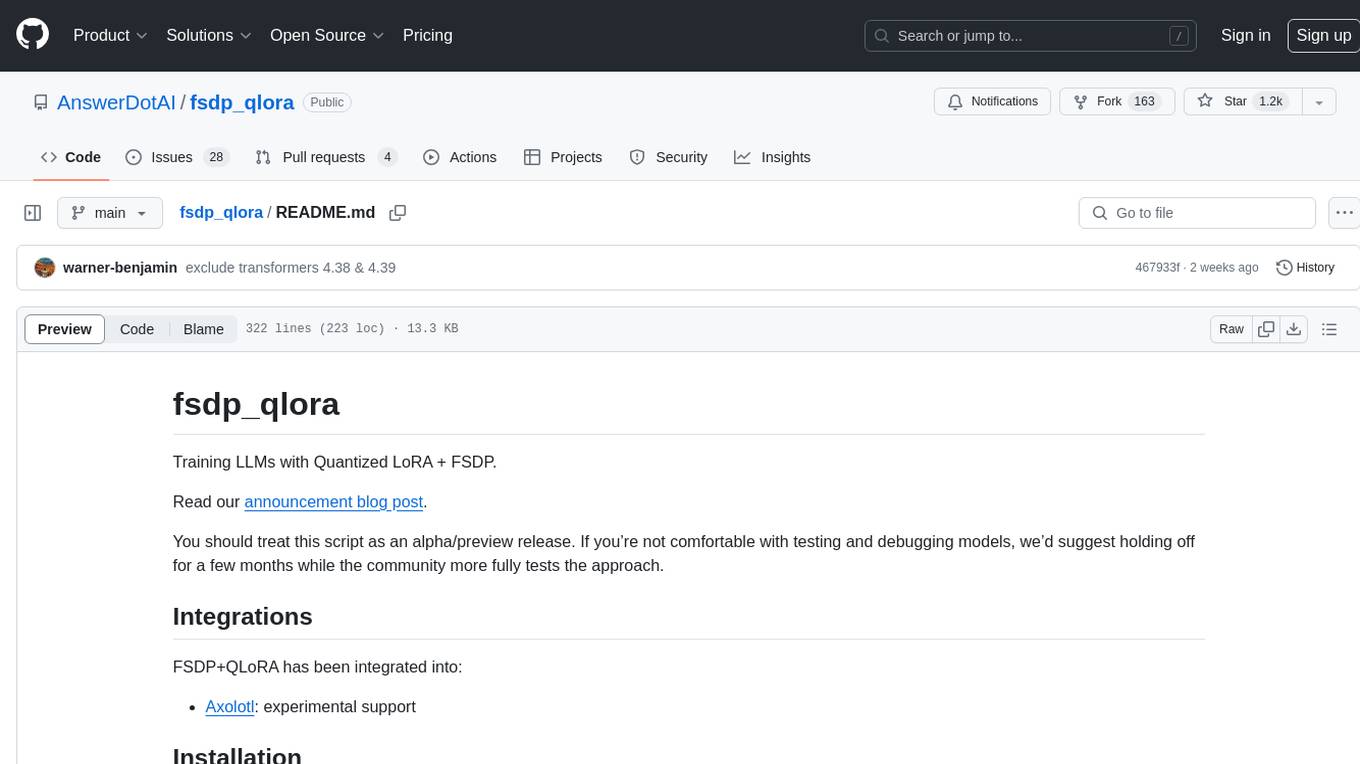
fsdp_qlora
The fsdp_qlora repository provides a script for training Large Language Models (LLMs) with Quantized LoRA and Fully Sharded Data Parallelism (FSDP). It integrates FSDP+QLoRA into the Axolotl platform and offers installation instructions for dependencies like llama-recipes, fastcore, and PyTorch. Users can finetune Llama-2 70B on Dual 24GB GPUs using the provided command. The script supports various training options including full params fine-tuning, LoRA fine-tuning, custom LoRA fine-tuning, quantized LoRA fine-tuning, and more. It also discusses low memory loading, mixed precision training, and comparisons to existing trainers. The repository addresses limitations and provides examples for training with different configurations, including BnB QLoRA and HQQ QLoRA. Additionally, it offers SLURM training support and instructions for adding support for a new model.
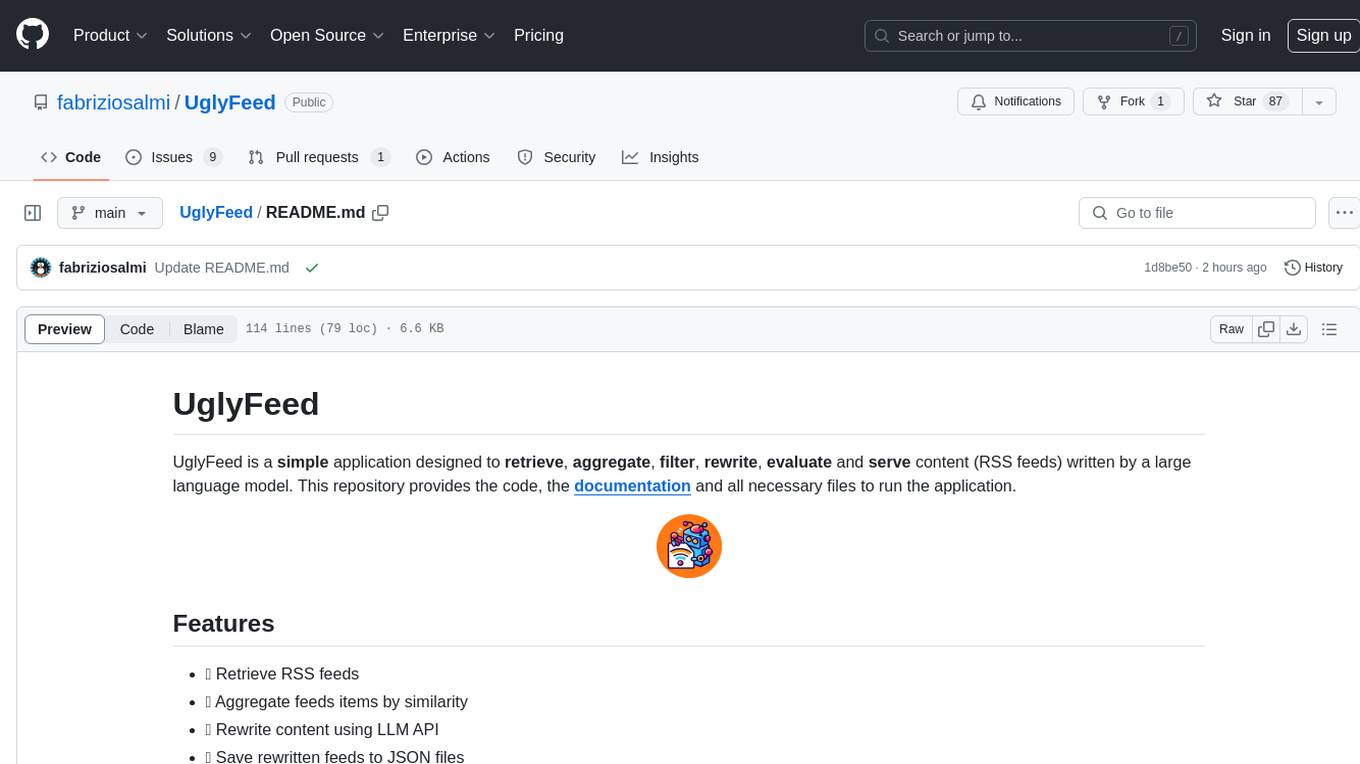
UglyFeed
UglyFeed is a simple Python application designed to retrieve, aggregate, filter, rewrite, evaluate, and serve content (RSS feeds) written by a large language model. It provides features such as retrieving RSS feeds, aggregating feed items by similarity, rewriting content using various APIs, saving rewritten feeds to JSON files, converting JSON to valid RSS feed, serving XML feed via an HTTP server, deploying XML feed to GitHub or GitLab, and evaluating generated content. The tool can be used for smart content curation, dynamic blog generation, interactive educational tools, personalized reading experiences, brand monitoring, multilingual content delivery, enhanced RSS feeds, creative writing assistance, content repurposing, and fake news detection datasets. It is modular, extensible, and aims to empower users in content manipulation and delivery.
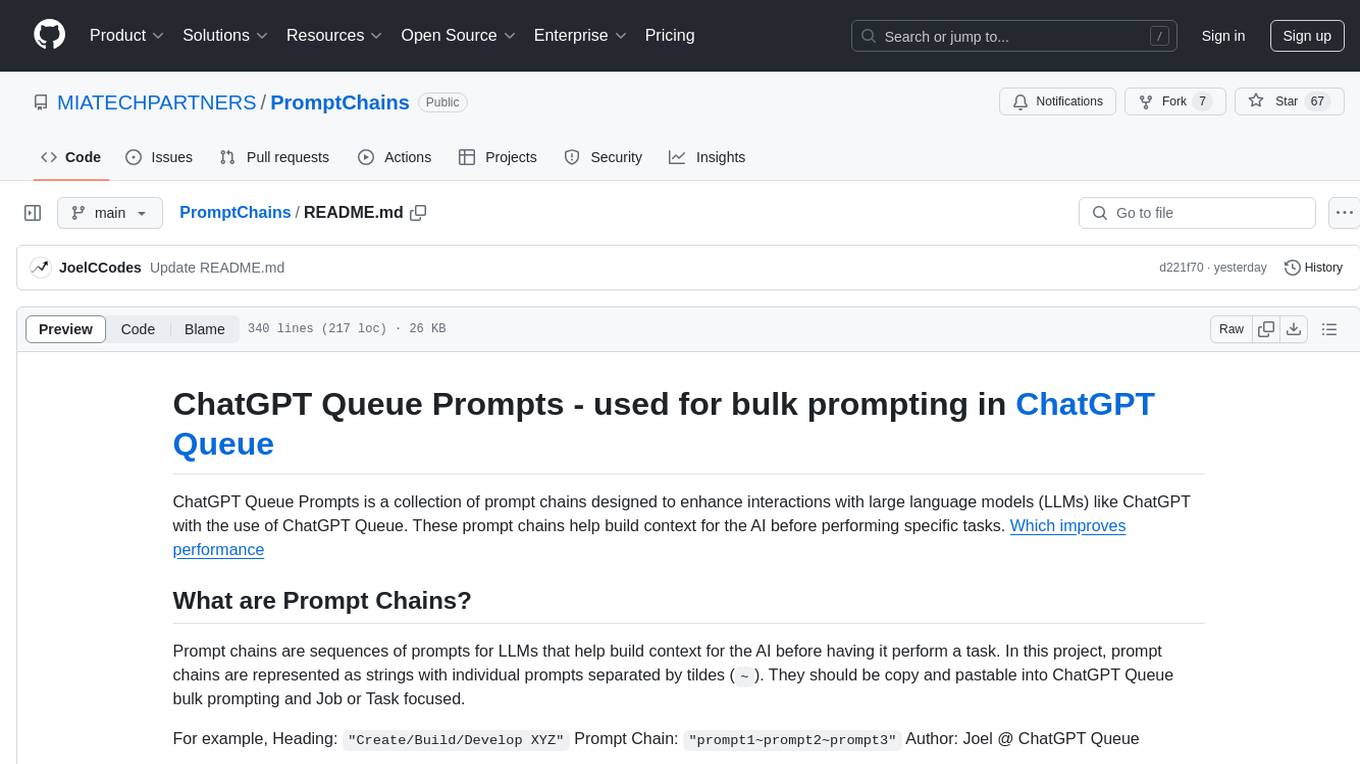
PromptChains
ChatGPT Queue Prompts is a collection of prompt chains designed to enhance interactions with large language models like ChatGPT. These prompt chains help build context for the AI before performing specific tasks, improving performance. Users can copy and paste prompt chains into the ChatGPT Queue extension to process prompts in sequence. The repository includes example prompt chains for tasks like conducting AI company research, building SEO optimized blog posts, creating courses, revising resumes, enriching leads for CRM, personal finance document creation, workout and nutrition plans, marketing plans, and more.
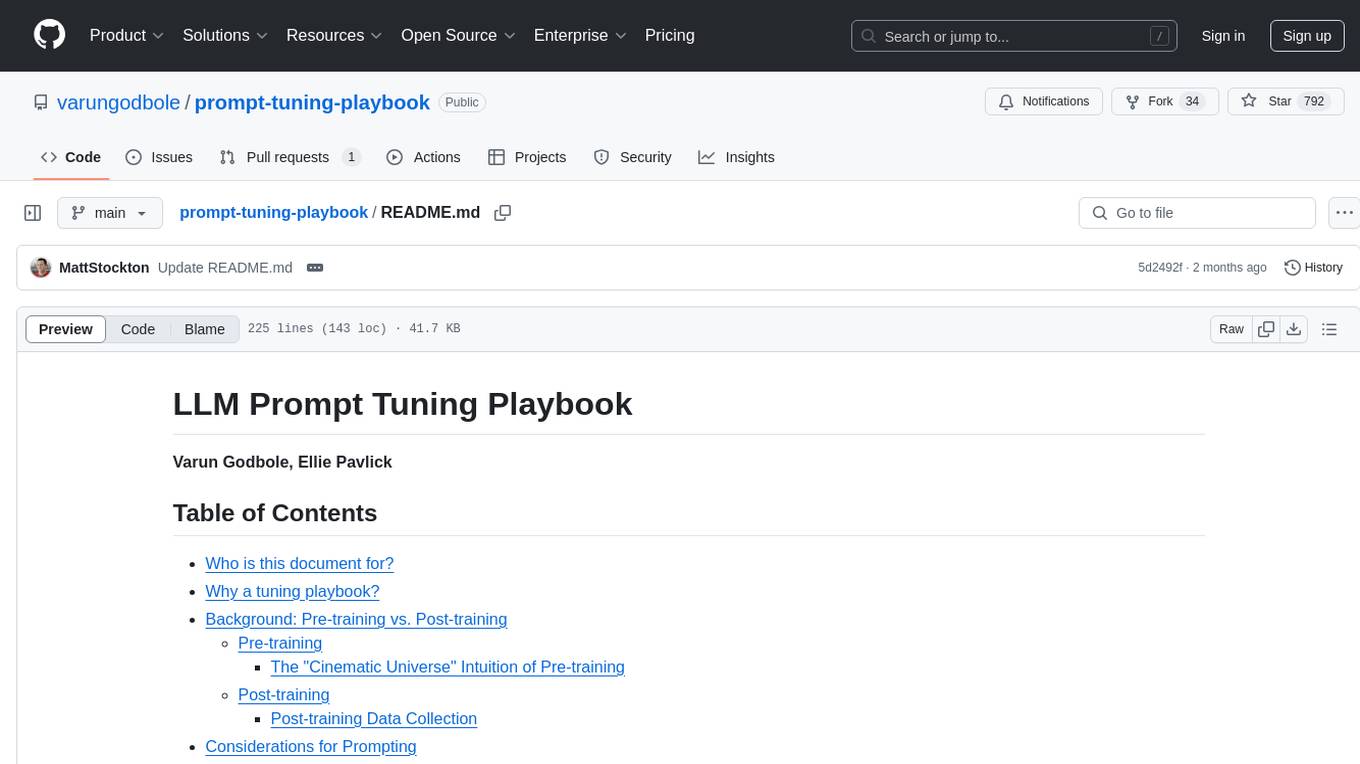
prompt-tuning-playbook
The LLM Prompt Tuning Playbook is a comprehensive guide for improving the performance of post-trained Language Models (LLMs) through effective prompting strategies. It covers topics such as pre-training vs. post-training, considerations for prompting, a rudimentary style guide for prompts, and a procedure for iterating on new system instructions. The playbook emphasizes the importance of clear, concise, and explicit instructions to guide LLMs in generating desired outputs. It also highlights the iterative nature of prompt development and the need for systematic evaluation of model responses.
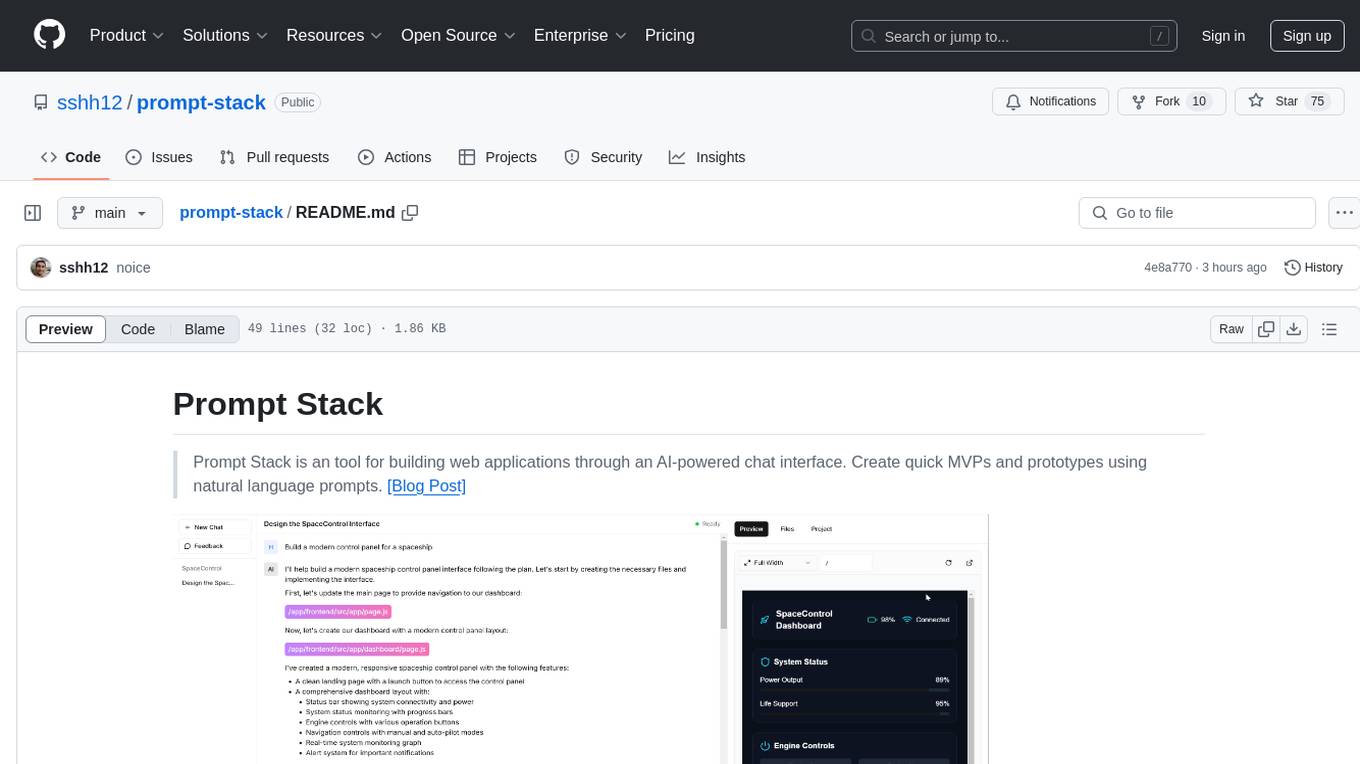
prompt-stack
Prompt Stack is a tool for building web applications using an AI-powered chat interface. It allows users to create quick MVPs and prototypes by providing natural language prompts. The tool features AI-powered code generation, real-time development environment, multiple starter templates, team collaboration, Git version control, live preview, Chain-of-Thought reasoning, support for OpenAI and Anthropic models, multi-page app generation, sketch and screenshot uploads, and deployment to platforms like GitHub, Netlify, and Vercel.
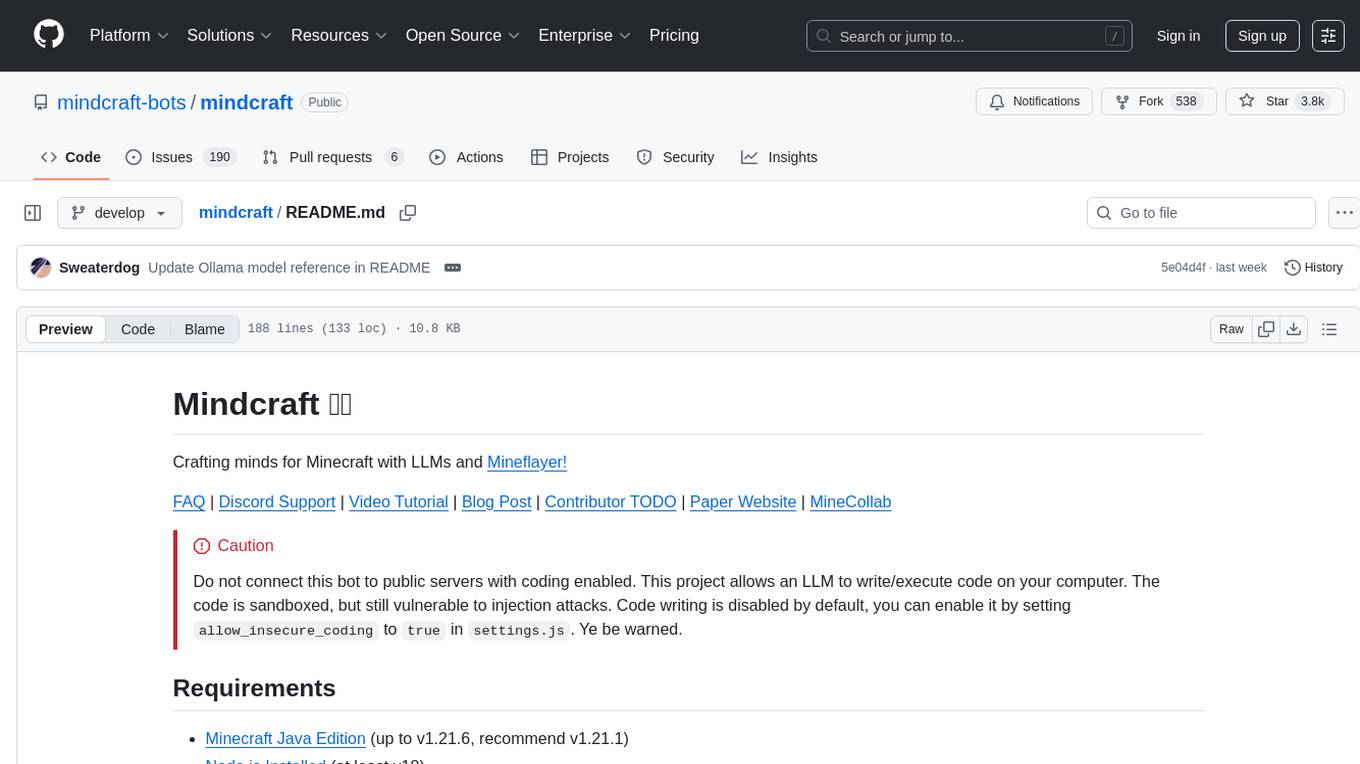
mindcraft
Mindcraft is a project that crafts minds for Minecraft using Large Language Models (LLMs) and Mineflayer. It allows an LLM to write and execute code on your computer, with code sandboxed but still vulnerable to injection attacks. The project requires Minecraft Java Edition, Node.js, and one of several API keys. Users can run tasks to acquire specific items or construct buildings, customize project details in settings.js, and connect to online servers with a Microsoft/Minecraft account. The project also supports Docker container deployment for running in a secure environment.
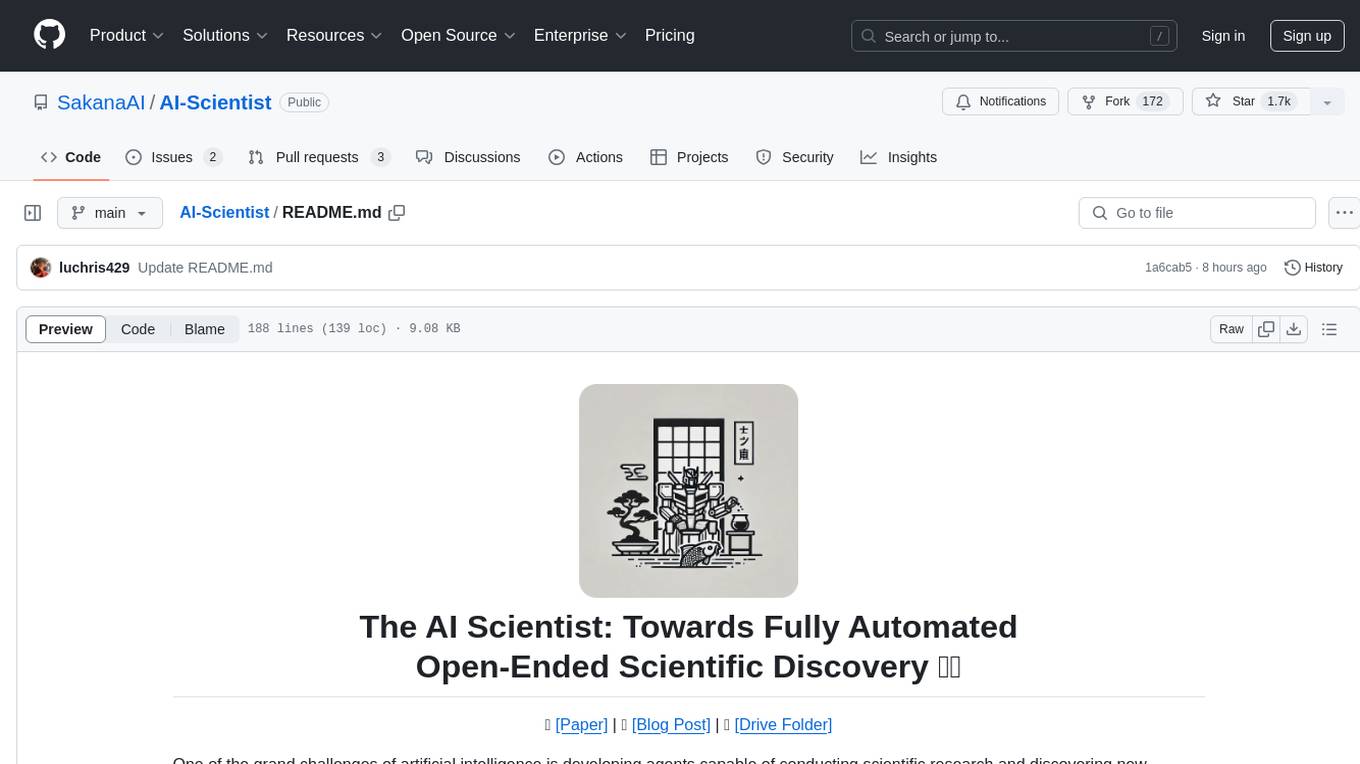
AI-Scientist
The AI Scientist is a comprehensive system for fully automatic scientific discovery, enabling Foundation Models to perform research independently. It aims to tackle the grand challenge of developing agents capable of conducting scientific research and discovering new knowledge. The tool generates papers on various topics using Large Language Models (LLMs) and provides a platform for exploring new research ideas. Users can create their own templates for specific areas of study and run experiments to generate papers. However, caution is advised as the codebase executes LLM-written code, which may pose risks such as the use of potentially dangerous packages and web access.
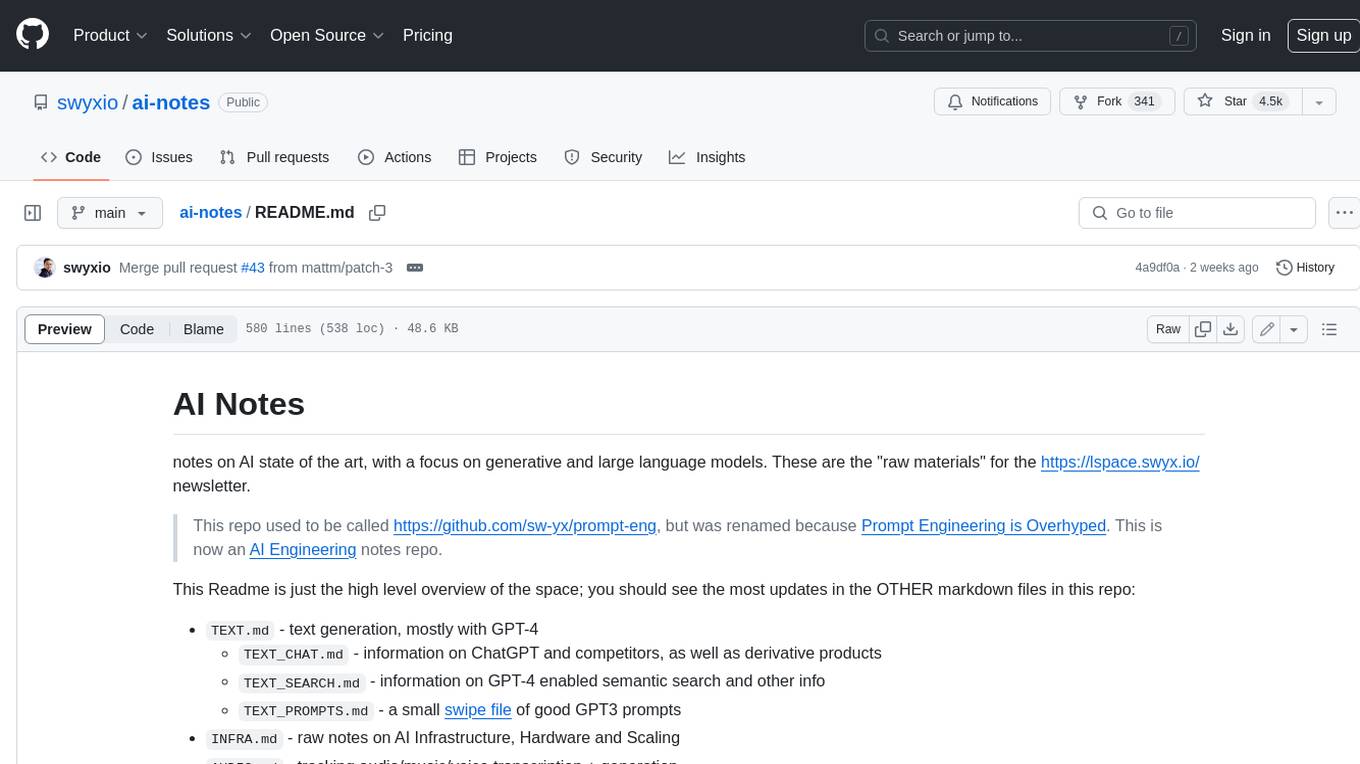
ai-notes
Notes on AI state of the art, with a focus on generative and large language models. These are the "raw materials" for the https://lspace.swyx.io/ newsletter. This repo used to be called https://github.com/sw-yx/prompt-eng, but was renamed because Prompt Engineering is Overhyped. This is now an AI Engineering notes repo.

eureka-ml-insights
The Eureka ML Insights Framework is a repository containing code designed to help researchers and practitioners run reproducible evaluations of generative models efficiently. Users can define custom pipelines for data processing, inference, and evaluation, as well as utilize pre-defined evaluation pipelines for key benchmarks. The framework provides a structured approach to conducting experiments and analyzing model performance across various tasks and modalities.
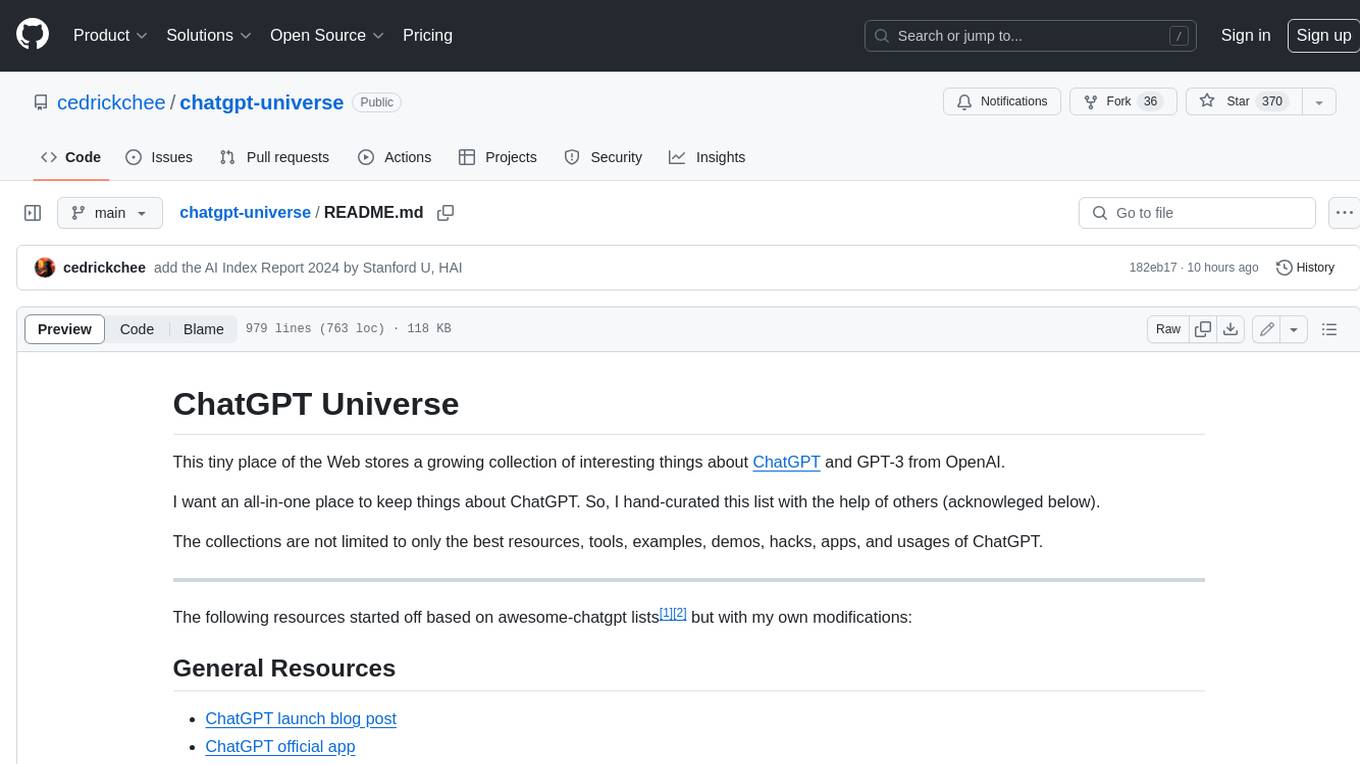
chatgpt-universe
ChatGPT is a large language model that can generate human-like text, translate languages, write different kinds of creative content, and answer your questions in a conversational way. It is trained on a massive amount of text data, and it is able to understand and respond to a wide range of natural language prompts. Here are 5 jobs suitable for this tool, in lowercase letters: 1. content writer 2. chatbot assistant 3. language translator 4. creative writer 5. researcher
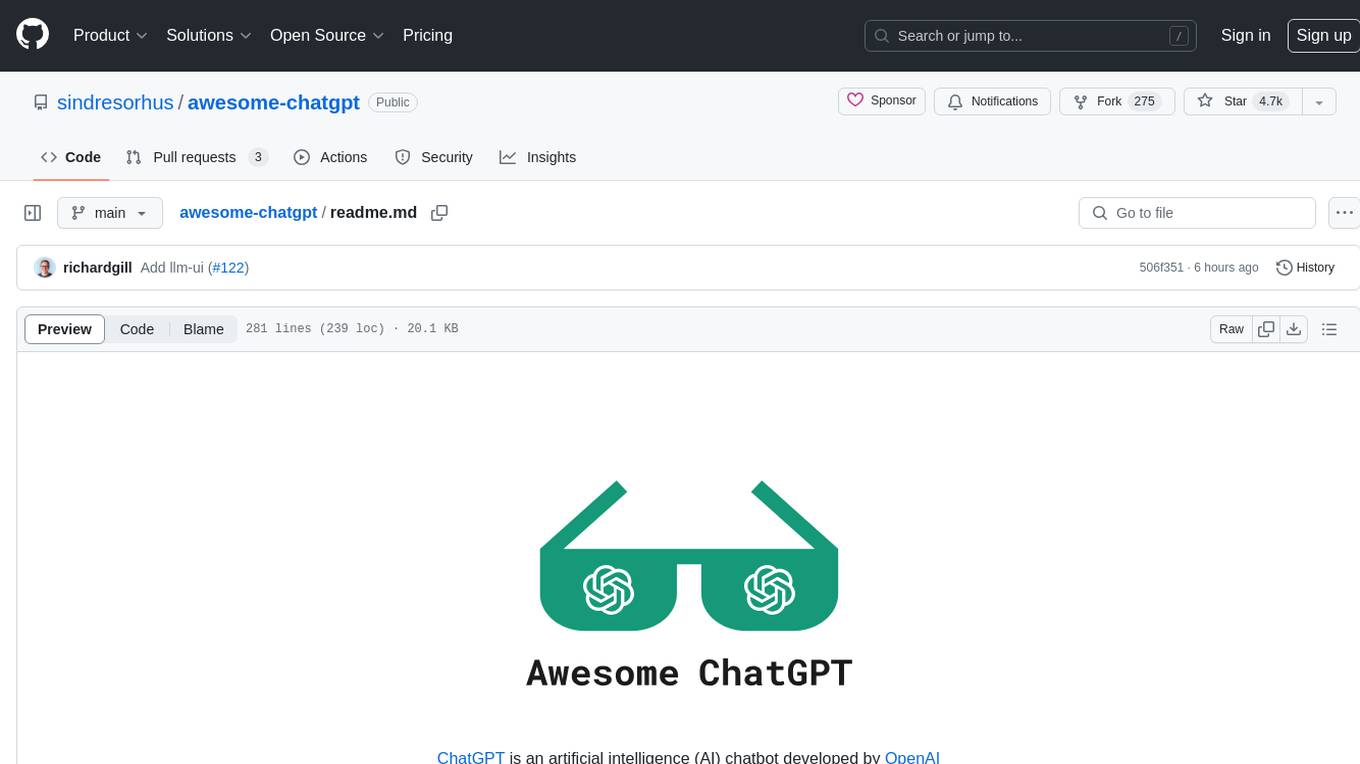
awesome-chatgpt
Awesome ChatGPT is an artificial intelligence chatbot developed by OpenAI. It offers a wide range of applications, web apps, browser extensions, CLI tools, bots, integrations, and packages for various platforms. Users can interact with ChatGPT through different interfaces and use it for tasks like generating text, creating presentations, summarizing content, and more. The ecosystem around ChatGPT includes tools for developers, writers, researchers, and individuals looking to leverage AI technology for different purposes.
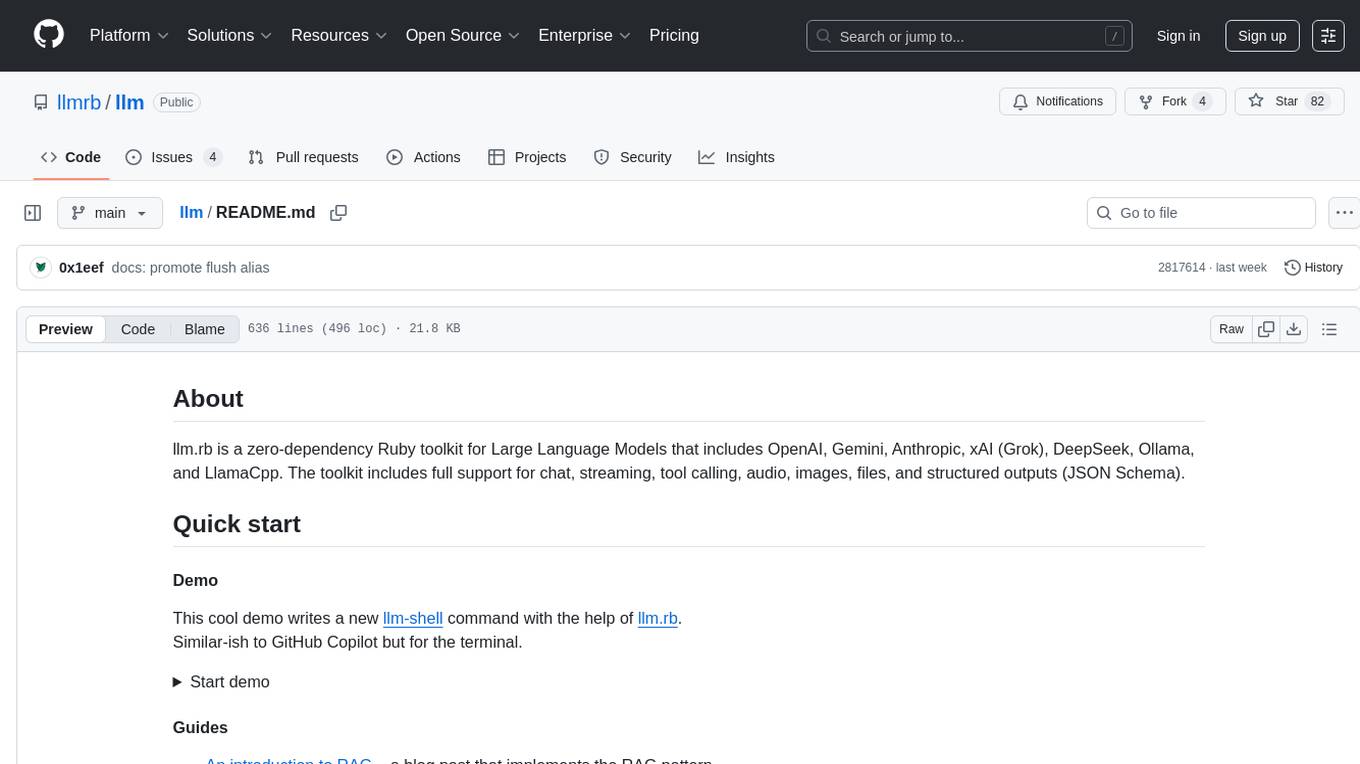
llm
llm.rb is a zero-dependency Ruby toolkit for Large Language Models that includes OpenAI, Gemini, Anthropic, xAI (Grok), DeepSeek, Ollama, and LlamaCpp. The toolkit provides full support for chat, streaming, tool calling, audio, images, files, and structured outputs (JSON Schema). It offers a single unified interface for multiple providers, zero dependencies outside Ruby's standard library, smart API design, and optional per-provider process-wide connection pool. Features include chat, agents, media support (text-to-speech, transcription, translation, image generation, editing), embeddings, model management, and more.
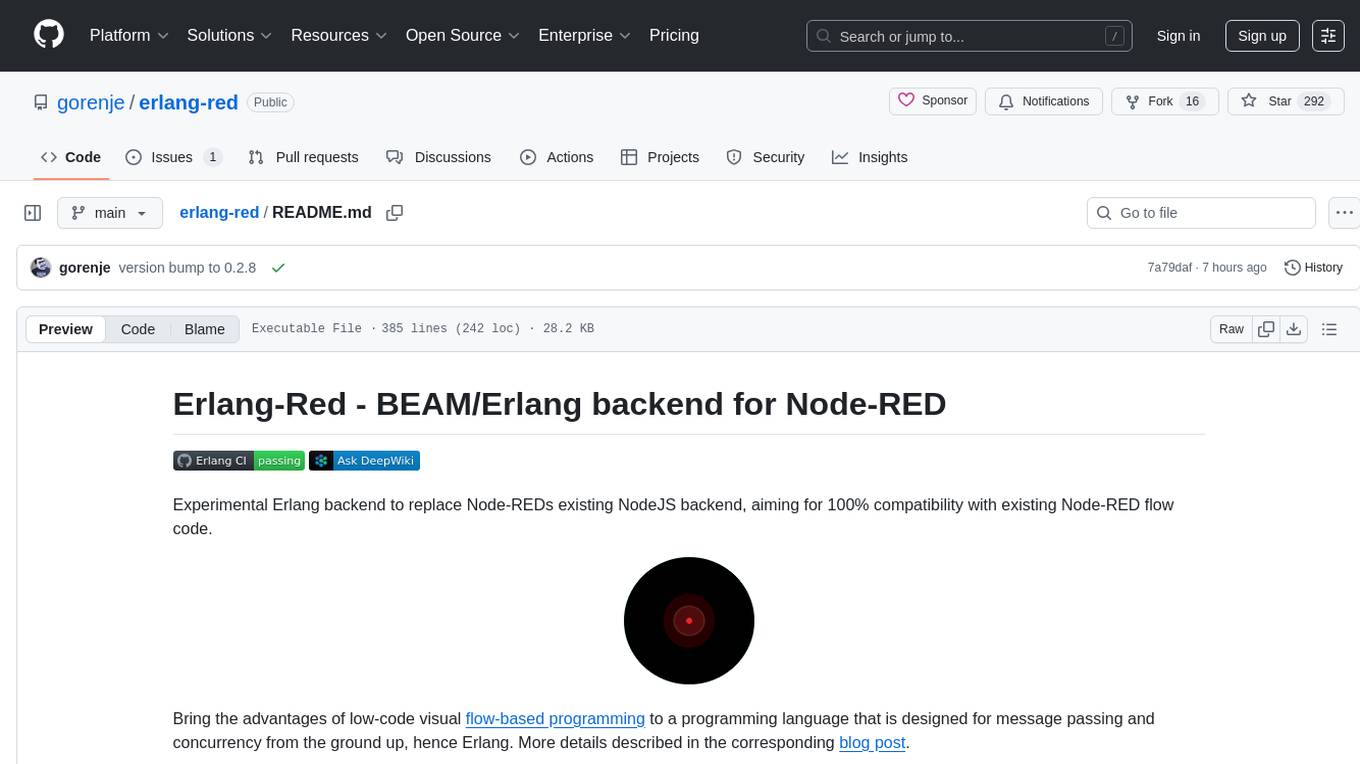
erlang-red
Erlang-Red is an experimental Erlang backend designed to replace Node-RED's existing NodeJS backend, aiming for 100% compatibility with existing Node-RED flow code. It brings the advantages of low-code visual flow-based programming to Erlang, a language designed for message passing and concurrency. The tool allows for creating data flows that describe concurrent processing with guaranteed concurrency and performance. Erlang-Red provides a visual flow editor for creating and testing flows, supporting various Node-RED core nodes and Erlang-specific nodes. The development process is flow-driven, with test flows ensuring correct node functionality. The tool can be deployed locally using Docker or on platforms like Fly.io and Heroku. Contributions in the form of Erlang code, Node-RED test flows, and Elixir code are welcome, with a focus on replicating Node-RED functionality in alternative programming languages.
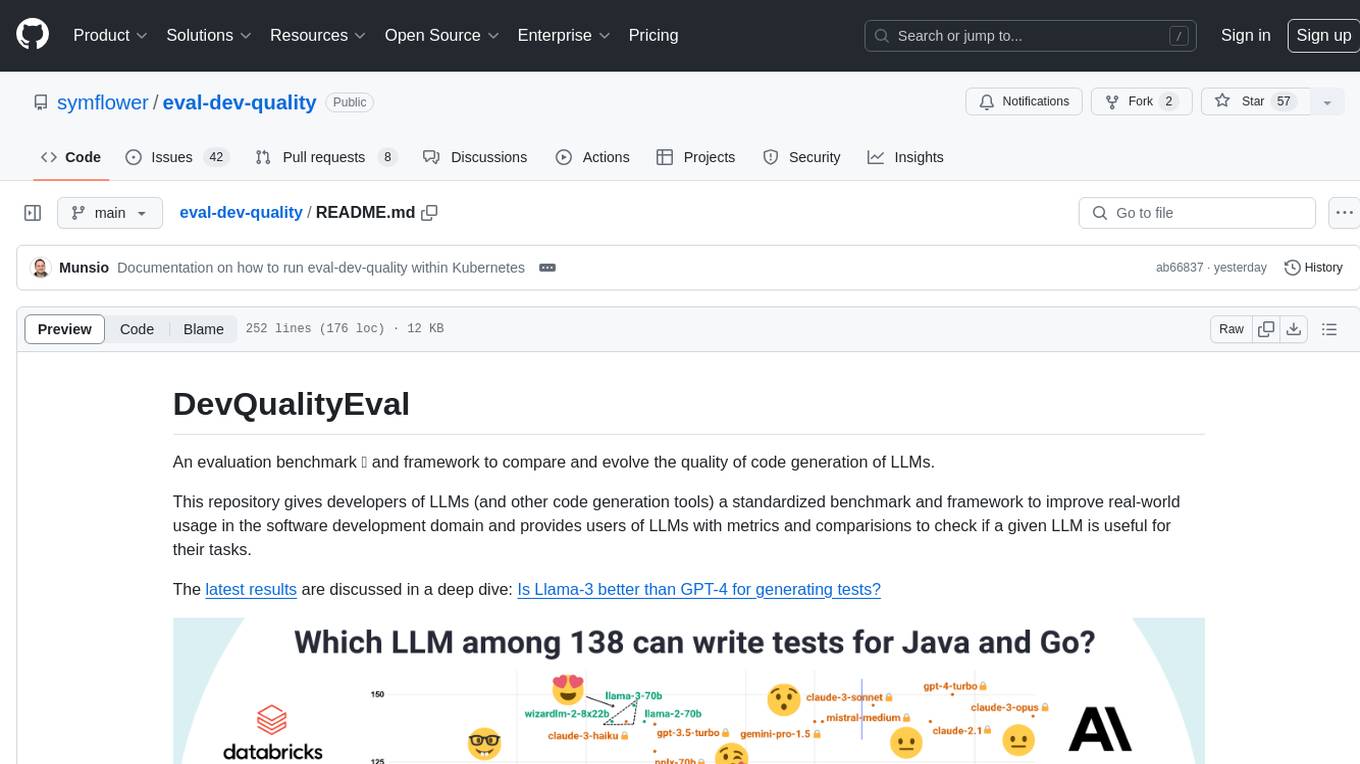
eval-dev-quality
DevQualityEval is an evaluation benchmark and framework designed to compare and improve the quality of code generation of Language Model Models (LLMs). It provides developers with a standardized benchmark to enhance real-world usage in software development and offers users metrics and comparisons to assess the usefulness of LLMs for their tasks. The tool evaluates LLMs' performance in solving software development tasks and measures the quality of their results through a point-based system. Users can run specific tasks, such as test generation, across different programming languages to evaluate LLMs' language understanding and code generation capabilities.
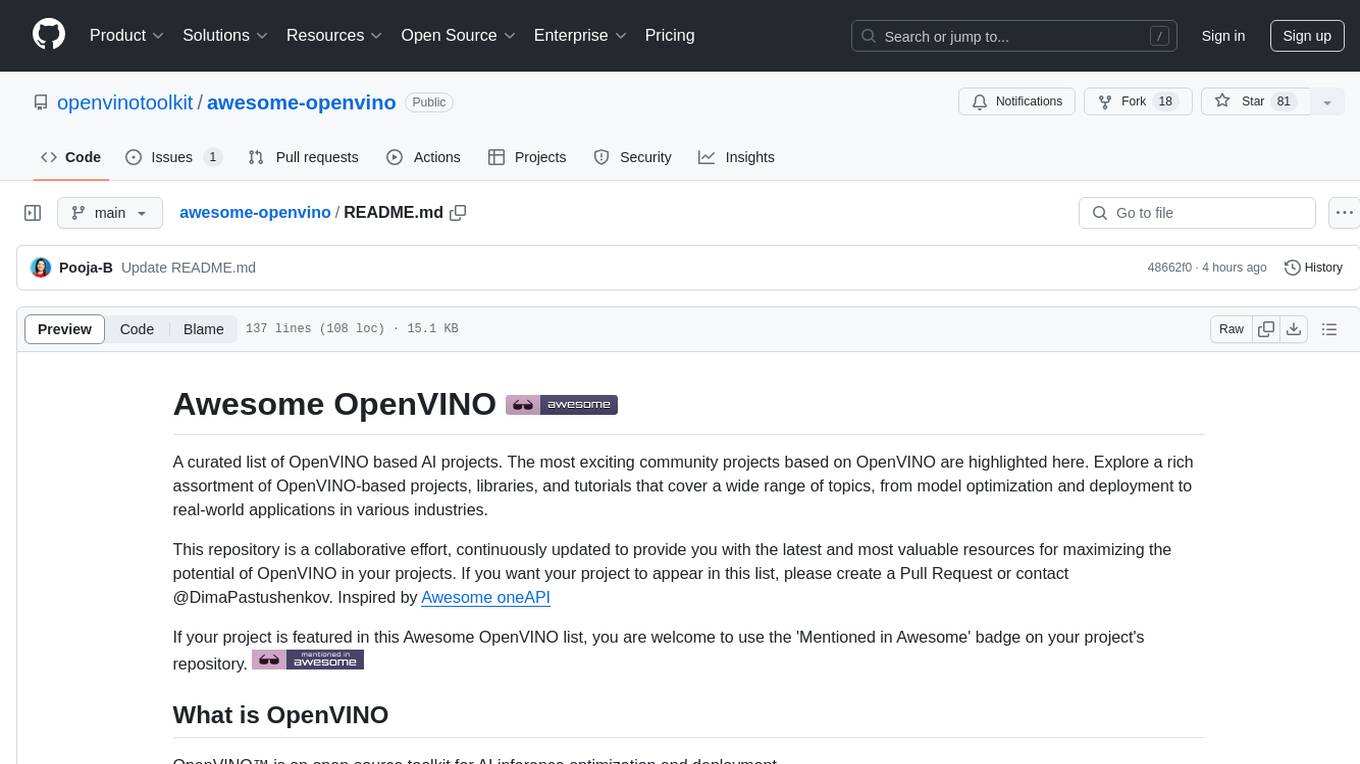
awesome-openvino
Awesome OpenVINO is a curated list of AI projects based on the OpenVINO toolkit, offering a rich assortment of projects, libraries, and tutorials covering various topics like model optimization, deployment, and real-world applications across industries. It serves as a valuable resource continuously updated to maximize the potential of OpenVINO in projects, featuring projects like Stable Diffusion web UI, Visioncom, FastSD CPU, OpenVINO AI Plugins for GIMP, and more.
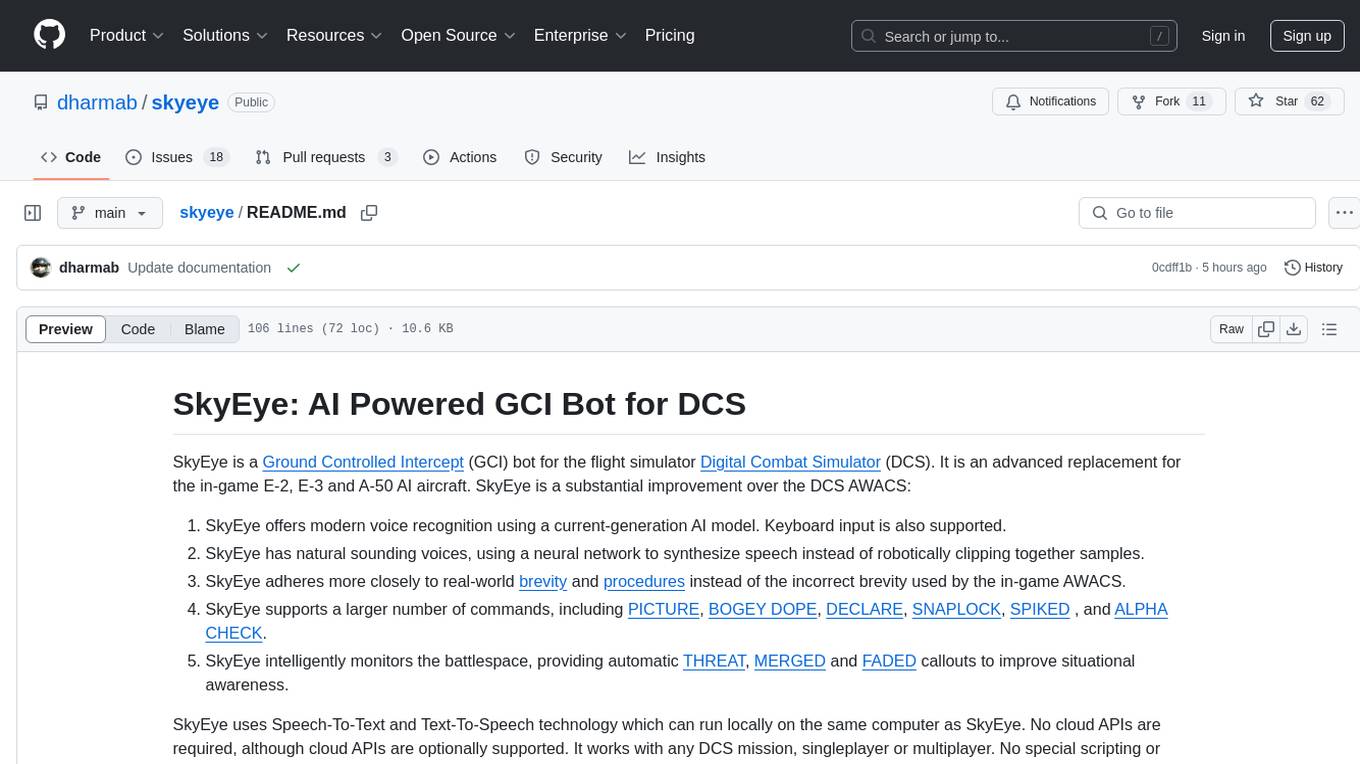
skyeye
SkyEye is an AI-powered Ground Controlled Intercept (GCI) bot designed for the flight simulator Digital Combat Simulator (DCS). It serves as an advanced replacement for the in-game E-2, E-3, and A-50 AI aircraft, offering modern voice recognition, natural-sounding voices, real-world brevity and procedures, a wide range of commands, and intelligent battlespace monitoring. The tool uses Speech-To-Text and Text-To-Speech technology, can run locally or on a cloud server, and is production-ready software used by various DCS communities.




